

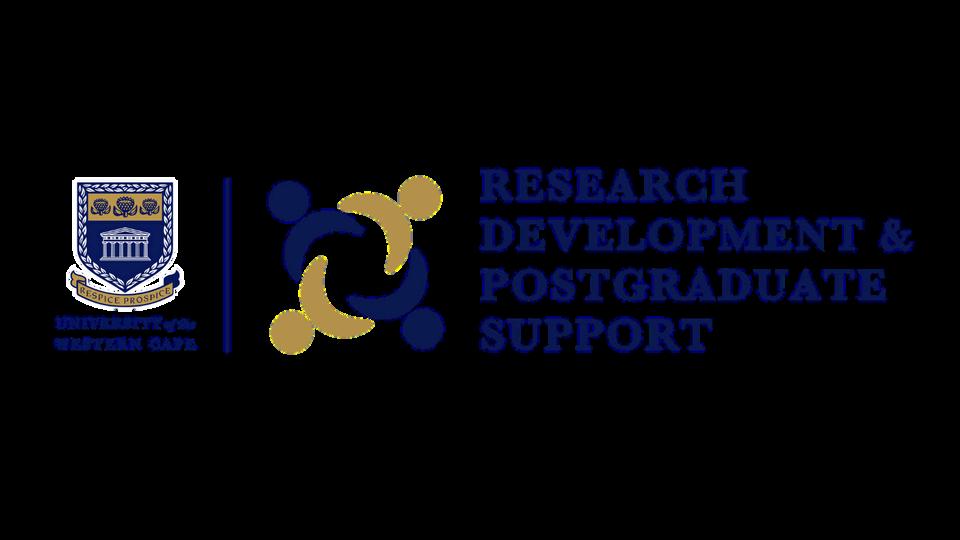





8 - 10 September 2025
Jakes Gerwel (Main) Hall, University Of Western Cape

Building Research Ecosystems for Global Collaboration
Building Research Ecosystems for Global Collaboration
"Together in Discovery. Connected for Impact." PROGRAMME
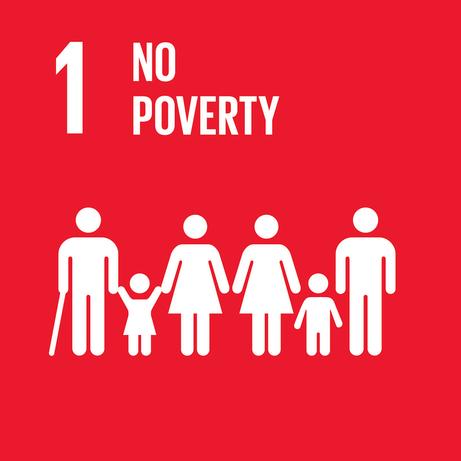




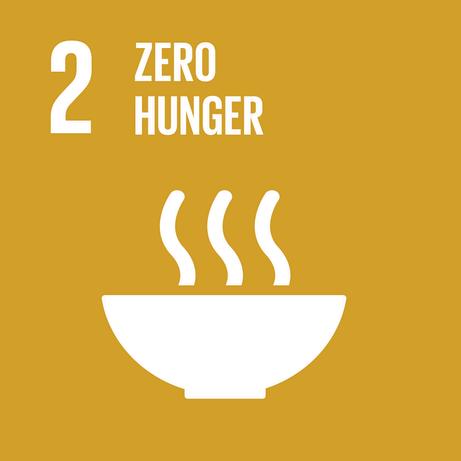
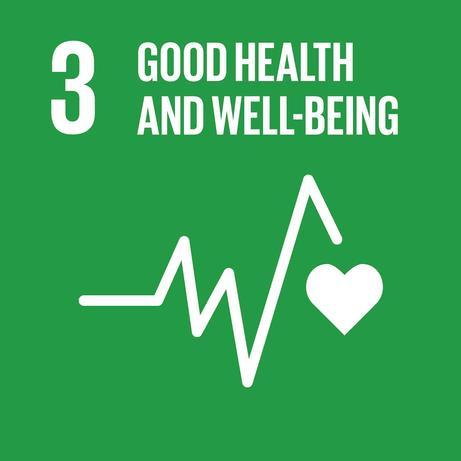

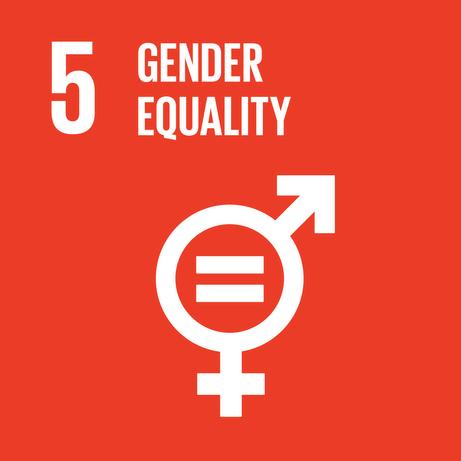
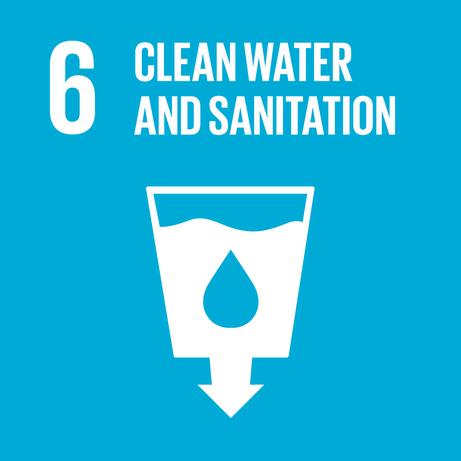
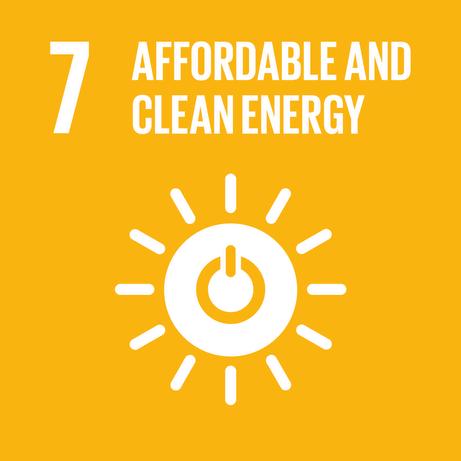

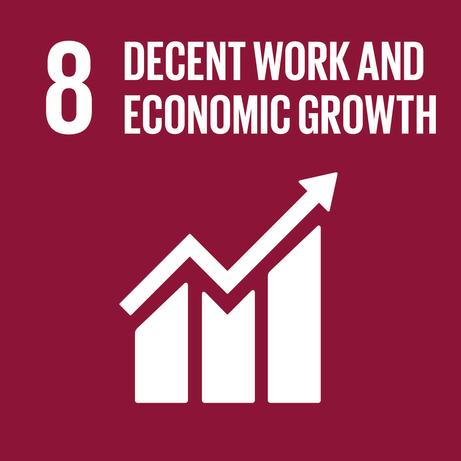


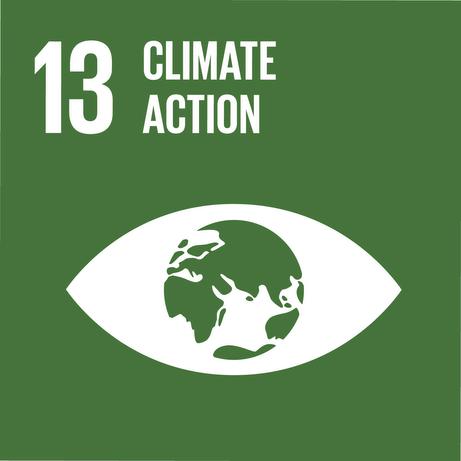
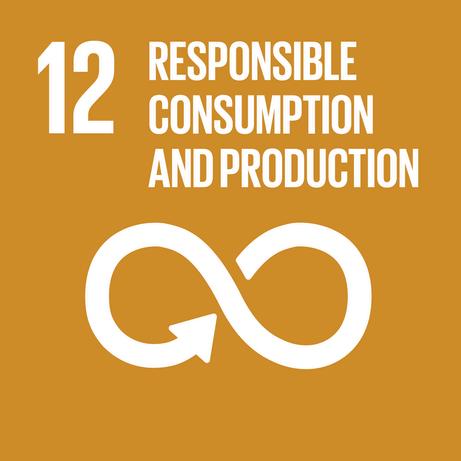
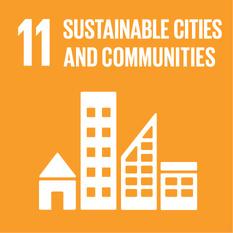


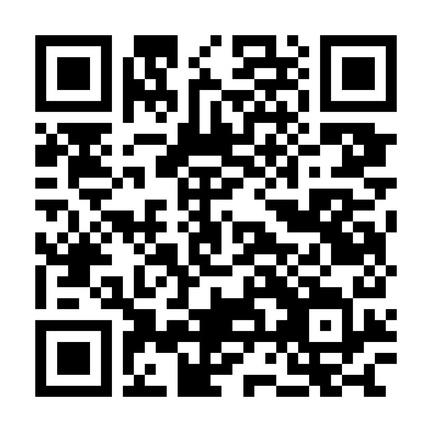

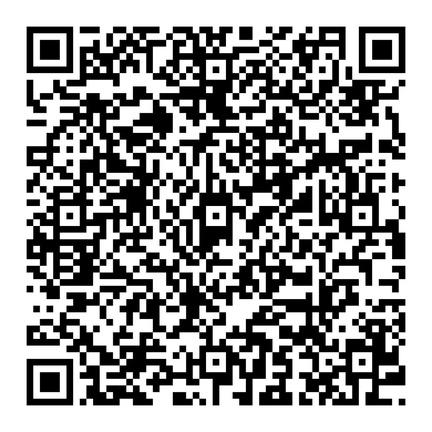
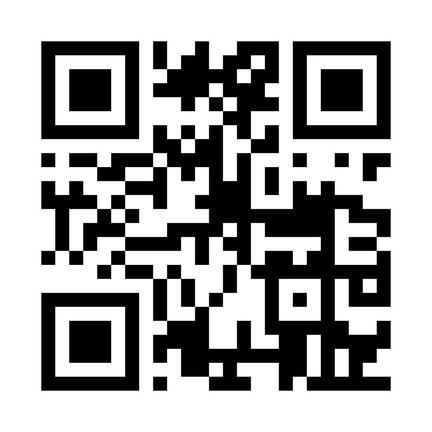
DAY ONE: 08 SEPTEMBER 2025
08h00-08h50 REGISTRATION
08h55
09h00-09h15
09h20-09h45
09h45-10h15
10h20-10h40
10h40-11h00
Session Chair: Prof Jesika Singh, Director: Research Development and Postgraduate Support
Welcome and Opening Remarks: Rector and Vice-Chancellor: Prof Robert Balfour
Foreword Address:
Deputy Vice-Chancellor (Research and Innovation) - Prof José Frantz
Introduction of the Guest Speaker: Prof Jesika Singh, Director: Research Development and Postgraduate Support
Guest Speaker: Prof Priscilla Baker, Senior Professor in Chemistry Wearable sensors for early detection of lifestyle diseases: Concepts and constructs
Introduction of the Keynote Speaker: Director: eResearch Office, Dr Clement Nyirenda
Emerging Researcher: Dr Thandiwe Gamedze, Senior Researcher, Desmond Tutu Centre for Religion and Social Justice, Faculty of Arts & Humanities. Freedom Theologies: South Africa as an experiment in making academic research more widely accessible
TEA BREAK
11h0012h50
11h0511h15
11h2011h30
11h3511h45
11h5012h00
DAY ONE: 08 SEPTEMBER 2025
VENUE: NEW EDUCATION BUILDING & JAKES GERWEL HALL (MAIN HALL)
New Education Building Classroom 9
Session Chair: Ndivhuho Takalani
Effectiveness of Nurse-led Selfmanagement Interventions for Hypertension Management: A Mixed-Methods Systematic Review and Meta-Analysis - S.P Adzitey, F Akimanimpaye & T Crowley
Understanding Trauma through a Decolonial Lens: Integrating Indigenous Knowledge Perspectives in the South African context
- T Basadien, R Ahmed, S.T Mamutse, Z Zoutenberg, T Mabhida, M Wiliams & L Ntsendwana-Bodla
Anti-Diabetic Agents as Emerging Geroprotectors: Implications for Aging and Male Fertility - N Brown, C S Opuwari, X Ma & R Henkel
Fundamentals First: A Case for Ground-Up Machine Learning in Solving Real-World Challenges - E Elson
Jakes Gerwel Hall (Main Hall)
Session chair: Aisha Mohamed Ali
12h0512h15
Land struggles for land justice in South Africa - N Gumede
12h2012h30
A Comparative Case Study: University and Government Synergies in South Africa
- A Mapukata, L Makapela, M Van Staden, F Vilakazi & M Claassen
Decolonising translation of academic resource materials through Ubuntu-informed approach and incorporation of IKS - S Mokapela
Legal Constructions of Resistance: Building Afrocentric Research Frameworks Beyond Extraction - Y Mdidimba
The Right to Administrative Justice: Rethinking Student Discipline in a world of radical student activism - S.M Sgudla
Literature Review on Cyberbullying Policies in South African Universities: Addressing ethical and legal considerations - M van Staden, F Vilakazi, L Makapela & A Mapukata
Shrinking gender & sexuality diversity and inclusion spaces in the height of toughening fundamentalisms and conservatisms in global policy and governance: Implications for South Africa - F Vilakazi-Alberts, M van Staden, L Makapela, A Mapukata & M Claassen
Investigation of the Operational Nurse Managers' knowledge and attitudes toward Transformational Leadership Styles in Ondo State, Nigeria - C Adeyemo, P Bimray & M Bemerew
12h3012h50 Q&A Session Q&A Session
12h5013h30 LUNCH BREAK
DAY ONE: 08 SEPTEMBER 2025
VENUE: NEW EDUCATION BUILDING & JAKES GERWEL HALL (MAIN HALL)
13h3015h20
13h3513h45
New Education Building Classroom 9
Session Chair: Janene Marais
Beyond the Virus: COVID-19’s
Systemic Impact on HIV Care, Mental Wellness, and Vaccine Uptake and Hesitancy Among Adolescents - Y Mayman
13h5014h00
14h0514h15
Transforming care: Empowering adolescent voices in the transition from paediatric to adult HIV services
- C Petinger, B van Wyk & T Crowley
14h2014h30
Knowledge in the Shadows: “Unmaking Colonial Research Practices” - S Sadien
14h3514h45
Researching Copyright Infringement in Gospel Lyrics and Music: Challenges and Prospects
- T Goliath
Bridging Science and Culture: Using Toulmin’s Argumentation Pattern to Integrate Indigenous Knowledge Systems and the Nature of Science in Social Science Education
- A Riffel
14h4515h15
Jakes Gerwel Hall (Main Hall)
Session chair: Casey Botha
Constraints Towards the Management of Rural-Based Sports and Recreational Facilities in the Local Municipalities of Limpopo Province
- S.C Kolobe & M.J Malema
Overview of UWC contribution to vaccine development and manufacturing talent development in Africa: Contributing to SDG 3 - S Egieyeh & J Whitty
Spatial Planning and Land Use Management By-laws as a Tool for Urban Climate Resilience in South African Cities: A Governance Perspective
- M Botes
Level of inflammatory mediators in periodontitis associated with preeclampsia - M Aborass
Reconfiguring Researcher Mobility in South Africa: Addressing Systemic Barriers in Global Talent Exchange
- S Filita
Q&A Session
Q&A Session
DAY TWO: 09 SEPTEMBER 2025
VENUE: JAKES GERWEL HALL (MAIN HALL)
08h00-08h50 REGISTRATION
09h00 - 09h05
09h05-09h30
09h35 - 10h00
10h00-10h30
10h30-13h00
10h35-10h45
Welcome and Opening
Prof Mosa Selepe, Deputy Director: Postgraduate Studies
Introduction of the Keynote Speakers: Prof Manogari Chetty
Keynote Address: Prof Veerasamy Yengopal, Dean: Faculty of Dentistry
Universal Health Coverage under the National Health Insurance: What is in it for dentistry?
Woman in Research Keynote Address: Prof Liezel Ennion, HOD: Physiotherapy, Faculty of Community and Health Sciences What If Your What If Works? – Stronger Together
TEA BREAK
DAY TWO: 09 SEPTEMBER 2025
VENUE: NEW EDUCATION BUILDING SESSION 2
New Education Building Classroom 8
Session Chair: Yolanda Regina Mayman
Towards a Regulatory Framework for Artificial Intelligence in South Africa: A Comparative Intellectual Property Law and Policy Perspective - S Hara
New Education Building Classroom 9
Session Chair: Charne Petinger
Intolerance of uncertainty and workforce retention in the Nigerian healthcare sector: The moderating role of resilience
- T Fashola, J.K Aderibigbe
10h3510h45
10h5011h00
Towards a Regulatory Framework for Artificial Intelligence in South Africa: A Comparative Intellectual Property Law and Policy Perspective - S Hara
Nanostructured Poly-L-Lysine
Modified Electrochemical Sensor for Antidepressant Detection in Mental Health Monitoring - D Abrahams & P Baker
Intolerance of uncertainty and workforce retention in the Nigerian healthcare sector: The moderating role of resilience
- T Fashola, J.K Aderibigbe
Maternal iron status and adverse birth outcomes in the Western Cape - K Govender & J De Smidt
11h0511h15
11h2011h30
Mandibular Cortical Bone Mapping for Mini-Implant Stability - E Thomas, A Harris & A.C Oettle
AI integration into public health services - challenges and opportunities - J Chipps & S Broomhead
11h3511h45
11h5012h00
Cultural sustainability and inclusive collaboration practices: The Global Collaborative Classroom in a South African Context - L Hlanjwa
Exploring Paenibacillus terrae B6a as a sustainable biocontrol agent for Fusarium proliferatum - E Smith, A.I Daniel, M Keyster & A Klein
Integrating AI info food systematic literature review: KwaZulu-Natal prospect - J Matsho
Disrupting Bureaucratic Culture: Readiness for digitalisation in South Africa’s Department of Home Affairs - C Huni
Shelf life prediction of fresh apple using machine learning: A data-driven approach - T Mphahlele
Strengthening Learning Support Ecosystems: Capacity Building for Inclusive Education in Senior-Phase Schools in the King Cetshwayo District - N.L Nxumalo
12h0512h15
12h2012h30
12h30-13h00
A Theoretical Debate on Sustainability and Socio-Ecological Change - N Mkhize & L Maphumulo
Exploring the Influence of AfterSchool Programmes on Learners in the Cape Flats: A Social Systems Theory Perspective - L Bowers & M Malema
One Day, Zero Budget: The AI-Powered Leap Toward Equitable Cardiovascular Care - F Petersen
Rethinking Development in the South African Context: Where Do We Go from Here? - S.D Mosome, A Daniels, D Mokhombo & L.S Maphumulo
13h00 - 14h00 Lunch Break
14h0015h00
14h0514h15
14h2014h30
14h3514h45
DAY TWO: 09 SEPTEMBER 2025
New Education Building Classroom 8
Session Chair: Moore Hutamo
14h5015h00
Tracing forces that shape post development thinking in South Africa
- M.L Phungula & T Ndlebe
Imòtoto, Ajọṣe, Ìdàgbàsókè: Yoruba
Values as Pathways to Decolonising Environmental Policy
- O Agboola
South African Sign Language (SASL) and the SDGs: Integration of Sign language in Higher Education - M Claassen, M van Staden (Masters), F Vilakazi-Alberts, L Makapela & A Mapukata
Factors influencing acceptance and uptake of malaria prevention interventions in at risk communities in Eswatini - G Dlamini & W Amde
15h0015h15 Q&A Session
New Education Building Classroom 9
Session Chair: Vuyolwethu Madasa
Experiences and lessons learnt from a South African and Belgium partnership to build the field of Pharmaceutical Public Health - H Bradley, R Coetzee, C Ernest & R Ravinetto
Research-Informed Problem-Based Learning: UWC Students’ Engagement with AI and Global Virtual Teams in the X-Culture Project - V.V Mugobo
Technology and Innovative Transfer: Novel and innovative approaches to drug discovery applications to Tuberculosis
- R Cloete & S Sampson
Proteomic Profiling of Plasma Exosomes from Oscc Patients Among South-Africa - D Temilola & M Chetty
Session
DAY THREE: 10 SEPTEMBER 2025
VENUE: JAKES GERWEL HALL (MAIN HALL)
08h00-08h45 REGISTRATION
09h00-09h10
09h10-09h40
09h40-10h00
10h00-10h30
Welcome and Opening Dr Ana Casanueva, Director: Technology Transfer Office
Introduction of the Keynote Speakers: Prof Chux Iwu, Faculty of Economic and Management Sciences
Keynote Address: Prof Marieta du Plessis, Acting HOD: Industrial Psychology, Faculty of Economic and Management Sciences
A Case Study Evaluation of the PEEP Programme's Multi-Modal: Approach to Academic Leadership
Keynote Address: Prof Tina Roberts, Oral Medicine and Periodontic Department, Faculty of Dentistry
A multisectoral approach to Head and Neck Cancer
DAY THREE: 10 SEPTEMBER 2025
VENUE: JAKES GERWEL HALL (MAIN HALL)
10h35 - 12h00 Session Chair: Janine Senekal
10h35
10h40
10h45
Accountability as A Core Value: Perceptions and Practices of Mid-Level Management at A Tertiary Hospital in The Western Cape Province, South Africa - A Mbasa & W Made
Promoting Inclusive Development via Community Engagement and Participatory Governance Models - M Witbooi, P Erasmus, J Saulse & K Moganane
Unlocking AI potential in University Supply Chain - Insights from a South African Case Study - D Bowers & A Bayat
10h50
10h55
11h00
11h05
11h10
11h15
11h20
11h25
11h30
11h30-12h00
Infrastructure for Global Research: Building a Collaborative Structural Database for Ebolavirus Proteins - K Brown & R Cloete, A Obasa, H Bendou, A.P Pandurangan, T Blundell & P Mbala-Kingebeni
Collaborative Feminist Praxis: Advancing Trans and Gender Diverse Inclusion in Higher Education through Multi-Stakeholder Partnerships
- L Makapela, A Mapukata, M Van Staden, M Claassen & F Vilakazi
Building Ethical AI Ecosystems: A South African Framework for Higher Education Institutions - J Powan-Voigt & C Van Den Berg
Exploring South African honey: A focus on antimicrobial activity
- T Rohman, N Samsodien, P Abrantes & R.C Kotze
Co-Creation of a First-Year Transition programme through Student-Staff Partnership - B Adams, B Adams, T Hlanjwa, M Jaftha & Z Bok
Analysis of dental anomalies in patients with unilateral cleft lip and palate at academic hospitals in the Western Cape, South Africa
- V Gomba & H.H Bellardie
Developing an Integrated Participatory Framework for Sustainable Development Goals in the SADC Region: Work-package 3
- L Magidigidi-Mathiso & C Hector
Comparative Study of Callistemon citrinus (Bottlebrush) and Punica granatum (Pomegranate) Extracts for Sustainable Synthesis of Silver Nanoparticles and Their Oral Antimicrobial Efficacy - A Mohamed, E Ismail, A Elzwawy, E Maboza, M.S Dhlamini & R.Z Adam
Cranifacial cephalometrics of a sample of individuals born with unilateral cleft lip and palate from academic hospitals in the Western Cape, South Africa - T Mvundla & H Bellardie
Q&A Session
12h05-12h40
12h40-13h10
DAY THREE: 10 SEPTEMBER 2025
Introduction of the Keynote Speakers: Dr Frederic Isingizwe, eResearch Office
Keynote Address: Dr Shirlene Neerputh, Director: Library Services
Elevating Open Institutional Repositories in Africa for Global Impact
Prof Sudeshni Naidoo, Director UWC WHO Collaborating Centre for Oral Health Sustainable and International Research Partnerships
Lunch Break
13h10 - 14h10
13h10-13h40
13h40-14h10
DAY THREE: 10 SEPTEMBER 2025
VENUE: JAKES GERWEL HALL (MAIN HALL)
Session Chair: Olushola Adeniyi
Adjudicators:
Prof Eugine Maziriri
Dr Keenau Pearec
Dr Lucinda du Plooy
Presenters
From Roots to Remedies: Plant-Derived Strategies Against Prostate Disease - E Koeras
Analysing Environmental Lessons from Paris Olympic Games to Promote Sustainable Sport sponsorship for South African Sport Federations
- M Mbanga
Transition experiences of adolescents on HIV treatment in public healthcare services in the Cape Town Metropole, South Africa: A mixedmethods study - C Petinger
Impact of the COVID-19 pandemic and vaccine roll-out on treatment experiences and mental well-being of adolescents on HIV treatment in the Western Cape, South Africa - Y.R Mayman
The impact of social media on undergraduate and postgraduate students’ academic writing in the writing centre at a university of technology in South Africa - P Sefalane-Nkohla
“Nous ne sommes pas encadrés”: Congolese refugees’ precarity and political mobilisation in Cape Town, South Africa - M.D Kazadi
Introduction of the Keynote Speakers:
Dr Shirlene Neerputh, Director: Library Services
Prof Ruth Hall, Director- Institute for Poverty, Land and Agrarian Studies
Mobilising Research Grants in a Volatile Economic Environment
Prof Anthea Jeftha, Head of Unit: Oral Medicine and Periodontic, Faculty of Dentistry
Precision care of the diabetic patient: the oversight of Periodontal considerations
14h10-14h20 Announcement of 3MT Winner/s
14h20-14h35
14h35-14h50
Vote of Thanks: Prof Jesika Singh, Director: Research Development and Postgraduate Support
CLOSURE: Prof José Frantz, DVC: Research & Innovation


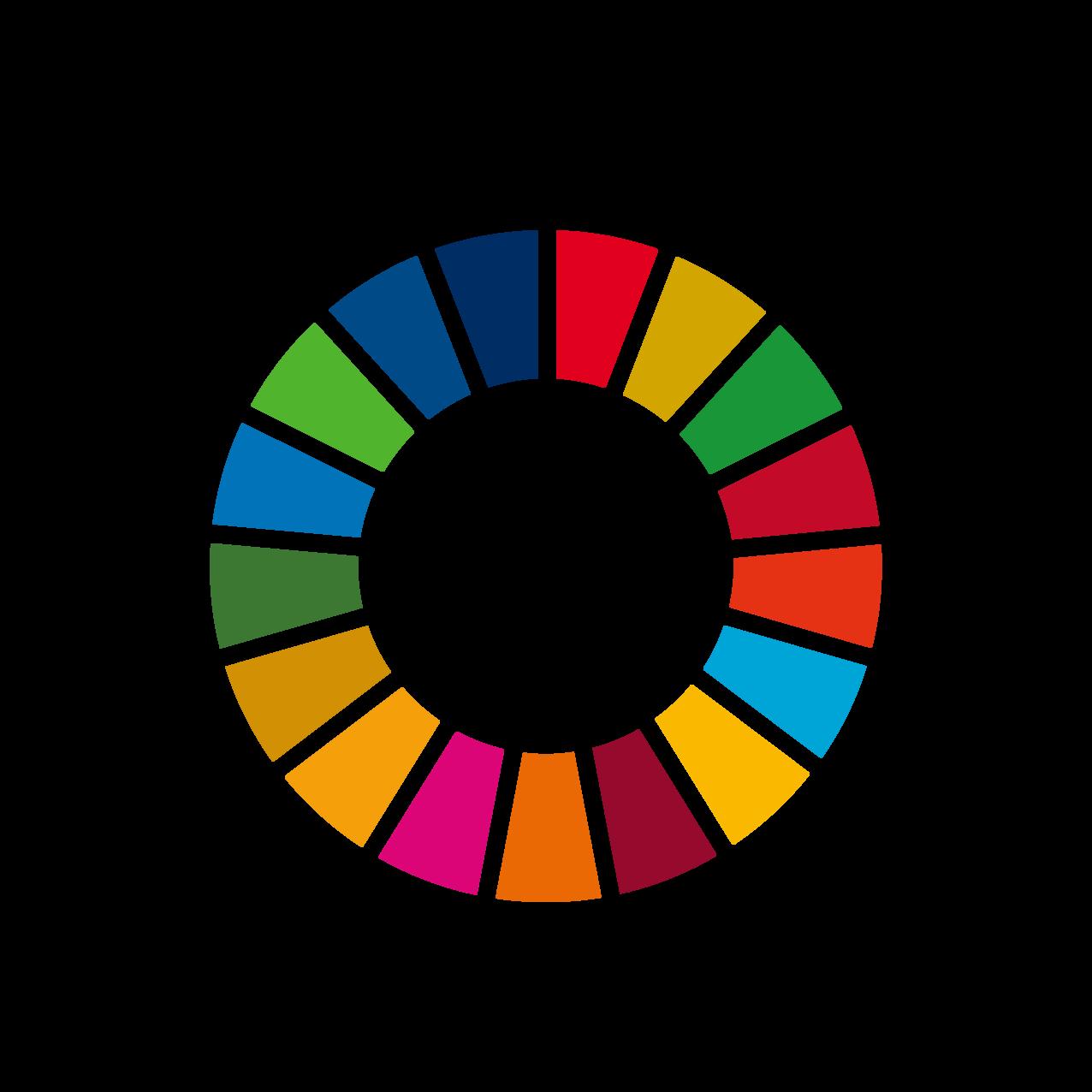
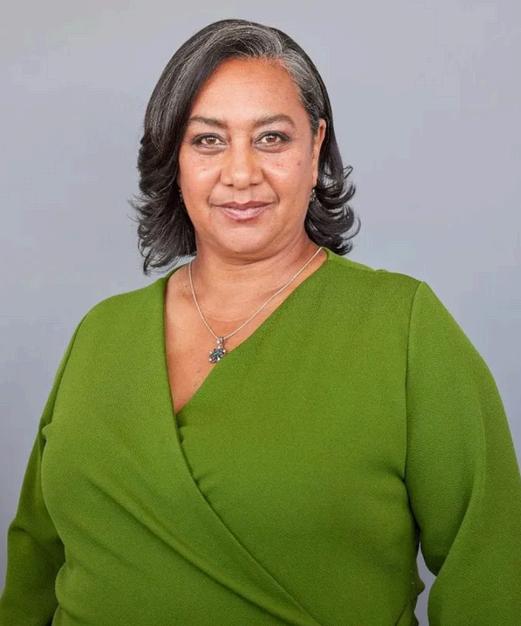
Baker is the 2025 winner of the L’Oreal-UNESCO For Women in Science International Award, Laureate for Africa and the Arab States She is a senior professor in Chemistry and the current South African Research Chair Initiative (SARChI) chair in Analytical Systems and Processes for Priority and Emerging Contaminants (ASPPEC) She is the director of the Electrochemical Sensors node of the Nanomicrofabrication Facility (NMMF) of the Department of Science and Innovation (DSI, South Africa), hosted at the University of the Western Cape (UWC). She is co-director of the first International Associated Laboratory (LIA) between France and South Africa. Baker is the codirector of the SensorLab research group (Chemistry department, UWC) since 2004. Baker was elected Regional Representative for South Africa and Africa (2017-2021), in service of the International Society of Electrochemistry (ISE, Switzerland) Baker has served as councilor for the South African Chemical Institute (SACI, 2006-2018) and chairperson of the Electrochemical division of SACI In 2020 Baker was awarded a Fellow in Residence appointment on the Paris Seine Initiative for Excellence programme, hosted at the CY Cergy Paris University, France In 2014 Baker was the winner of the deputy vice- chancellor’s Young Researcher Award, (UWC) In the same year she was announced the winner of the Distinguished Woman Scientist Award in the category of Physical and Engineering Sciences, Department of Science and Technology, Ministry of South Africa.
Wearable sensors have emerged as a transformative technology for the early detection and management of lifestyle diseases such as diabetes, cardiovascular disorders, and obesity These compact, bodyintegrated devices continuously monitor physiological and biochemical parameters, enabling real-time health assessment and early intervention Central to their functionality is electrochemical sensing, which allows for the sensitive and selective detection of biomarkers like glucose, lactate, or cortisol in biofluids such as sweat, saliva, or interstitial fluid Electrochemical sensors operate through redox reactions, translating biochemical changes into electrical signals that can be processed and interpreted. Key constructs in their design include miniaturized electrodes, biocompatible materials, and energyefficient circuitry to ensure long-term, non-invasive operation. The integration of such sensors with wireless communication platforms further facilitates remote health monitoring, thereby promoting personalized healthcare and proactive disease management.



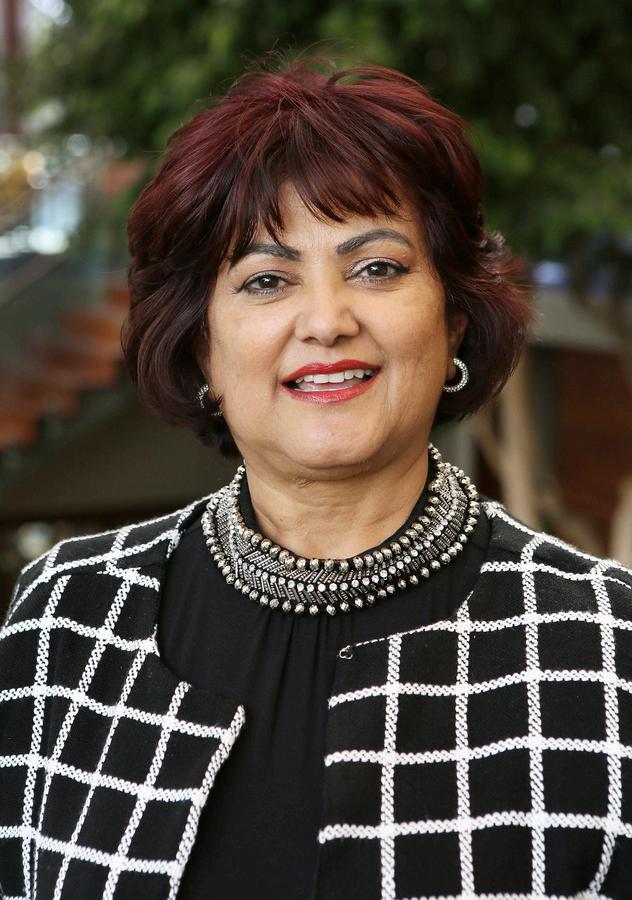
Dr Neerputh is the Director of Library Services at the University of the Western Cape. Her career spans over 35 years of experience in higher education library profession Dr Neerputh envisages re-positioning the library towards strategic alliances for academic success in a digital research-led university. She serves as the Deputy Chairperson of The South African National Library and Information Consortia (SANLIC) Board 2025; She was the Chairperson of the Cape Consortia Higher Education Library Network (CHELIN) in 2024 She has been the Past Chairperson of the Committee of Higher Education Libraries in South Africa (CHELSA); Ex-Chairperson of The Library and Information Association of South Africa (LIASA - HELIG) National Higher Education Interest Group 2018-2020; Member of LIASA Professional Board; Board member for the National Library for the Blind S.A; Advisory Board member for EBSCO and SABINET She presented papers at national and international conferences on Academic Leadership and Technologies. Shirlene’s passion lies in leading and enriching the university library with embedded librarianship principles by proactively being responsive to the rapid disruption and transformation in the 4th IR Academic Libraries.
This presentation chronicles the journey charted by the Committee of Higher Education Libraries in SA (CHELSA) on building a National Repository for advancing research and Open Science in South Africa, and highlights the partnership adventure with TENET, Ubuntu-Alliance and the National Research Networks to position Africa as a research hub, and promote social justice
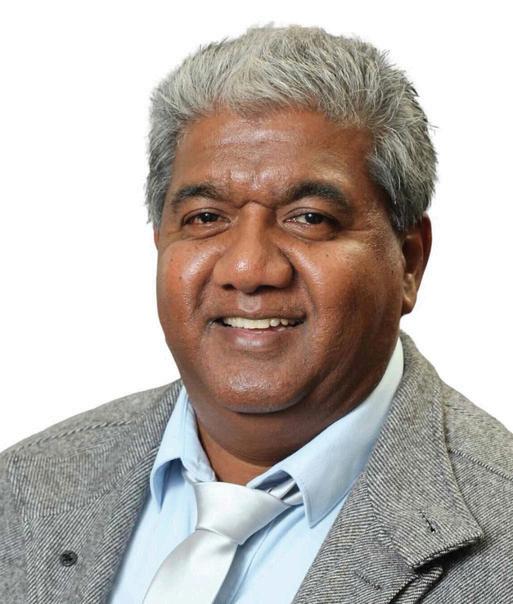
Prof Yengopal, a dental public health specialist, is the Dean of the Faculty of Dentistry, University of the Western Cape, Cape Town, South Africa He is a seasoned academic with an excellent track record in teaching and research and has authored over 200 publications His publications have been cited by the top researchers and dental organizations internationally and locally He is an expert in evidence-based dentistry and systematic reviews and has been invited to speak at international conferences all over the world He leads a faculty that aims to become a global player in terms of teaching, training and research.
The SA health system is inequitable, with the privileged few having disproportionate access to health services The National Health Insurance (NHI) is a South African innovative healthcare financing system founded on the ‘Constitutional principle’ of the right to quality health care The NHI is still in the formative stages of implementation There are many challenges ahead and dentistry needs to find its place within the NHI service offering. This talk will provide an update on the NHI with a specific focus on insights on the oral health package of care that may be available when the NHI goes live in South Africa.

Ass. Professor Liezel Ennion is a physiotherapist and researcher championing accessible rehabilitation in developing countries As Chairperson of Physiotherapy at the University of the Western Cape, she leads groundbreaking interdisciplinary research in prosthetic rehabilitation and assistive technology innovation Prof Ennion exemplifies collaborative leadership, working extensively with local and international biomedical engineers to develop innovative solutions for underserved communities Her current research focuses on developing biomedical prototypes for diabetic sensation monitoring, demonstrating how women in healthcare can bridge clinical expertise with engineering innovation With over R3 7 million in secured research funding and recognition as a Y2 NRF-rated researcher, she has published extensively on prosthetic rehabilitation in rural settings. A patent was filed for her prototype, and her work with the World Health Organization’s Global Assistive Technology initiative showcases her commitment to translating research into global impact Prof Ennion’s advocacy-driven research approach transforms lives while advancing women’s leadership in interdisciplinary scientific collaboration
As a physiotherapist trained at UWC, I have been inspired by our institutional slogan "What If Your What If Works?" throughout my research career This presentation chronicles my decade-long interdisciplinary journey from improving assistive technology access in rural healthcare settings to developing innovative biomedical solutions for diabetic complications I will share the evolution of collaborative research that bridges traditional disciplinary boundaries to address pressing global health challenges My presentation will focus on my current and ongoing research project

Prof Marieta du Plessis is a Full Professor of Industrial Psychology at the University of the Western Cape and an NRF rated researcher, specialising in leadership development, organisational behaviour, and positive organisational psychology. A registered Industrial Psychologist and Chartered HR Practitioner, she integrates academic scholarship with extensive practitioner experience in leadership coaching, organisational consulting, and capacity-building. She has supervised over 40 Master’s and six PhD graduates, led multiple funded research projects, and published widely in peer-reviewed journals and books Internationally, she serves as Lead Partner of the LEAD Academic Network and Co-Convenor of the WERA International Research Network on Digital Academic Leadership. Her work centres on advancing leadership through evidence-based, socially impactful initiatives, equipping leaders and organisations to align purpose with practice.
A
This keynote examines transformational leadership development in higher education, with a focus on building research capacity among mid-career academics Drawing on a case study of the PEEP Leadership Programme at the University of the Western Cape, it highlights how a comprehensive, year-long intervention combining workshops, coaching, mentoring, and research funding can strengthen leadership capabilities and research productivity. Using Kirkpatrick’s Four-Level Evaluation Model and Transformational Leadership Theory, the study demonstrates measurable growth in leadership dimensions, career advancement, and institutional impact, offering a replicable model for fostering sustainable academic leadership
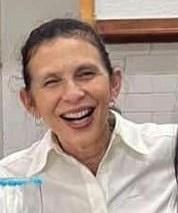
Prof Tina Sharon Roberts
Prof Tina Sharon Roberts is a Maxillofacial and Oral Pathology and Genetics researcher whose career reflects both scientific depth and steady evolution She began with early investigations into histological markers for predicting prognosis in T1 and T2 squamous cell carcinomas, work that earned her the Young Researcher’s Award from the South African Head and Neck Oncology Society in 1998 This foundation led her into broader areas of oral oncology and dental genetics, where she has become an influential leader A central focus of her current research is the development of exosome-based diagnostic and prognostic biomarkers for head and neck cancers. As Principal Investigator of the project “Precision Medicine: Development of exosome-based diagnostic and prognostic biomarkers for head and neck cancers,” she is advancing translational science with direct clinical relevance Her role in establishing the Head and Neck Oral Oncology Clinic at the University of the Western Cape has been pivotal The clinic integrates patient care, postgraduate training, and research It has grown into a hub where oral pathologists, maxillofacial specialists, ENT surgeons, and radiation oncologists from Stellenbosch University and Tygerberg Hospital work together to deliver comprehensive care
A multisectoral approach to head and neck cancer (HNC) offers a transformative strategy for improving prevention, early detection, treatment, and survivorship outcomes. By integrating the efforts of clinical teams, public health institutions, academic researchers, and policymakers, this model supports coordinated action across the cancer continuum. Clinically, multidisciplinary teams comprising oncologists, surgeons, dentists, radiologists, pathologists, and allied health professionals enable early diagnosis and individualised care, improving survival and reducing morbidity. Public health agencies enhance prevention by targeting tobacco, alcohol, and HPV through education, vaccination, and legislative action Academic institutions contribute through research, guideline development, and training, while policymakers strengthen access and equity through funding, regulation, and infrastructure support Some countries that have implemented such coordinated strategies show earlier diagnoses, better outcomes, and reduced disparities This approach not only improves patient-level indicators but also builds more resilient, equitable health systems to manage the rising global burden of HNC.

Dr Thandi Gamedze is an educator, theologian, cultural worker, and poet based at the University of the Western Cape’s Desmond Tutu Centre for Religion and Social Justice as a Senior Researcher Her doctoral research was transdisciplinary, bringing together the worlds of education and theology to better understand the role churches play in both upholding and challenging dominant power relations relating to ace, gender, and class. Thandi’s interests include black theology, beration theology, social justice, education, and the arts – particularly poetry She has broad experience working across multiple sites, ncluding churches, universities, high schools, and community organisations
Within the context of post-apartheid political demobilisation, church liberation struggle histories have largely been relegated to the margins of popular church discourse and awareness. As decolonial scholars, activists, and practitioners teach us, the knowledge of history (of both oppression and resistance to this oppression) is key to the project of decolonisation and social justice. In response to these two things – the gap in popular knowledge of church struggle histories, and the decolonial imperative to make these histories known - I developed Freedom Theologies: South Africa. Through a bingo-adjacent methodology, Freedom Theologies allows participants to engage with accessibly curated, largely marginalised narratives of the South African Church’s role within the anti-apartheid struggle. This session will engage with Freedom Theologies: South Africa as an experiment in making academic research accessible, exploring its methodology, its pedagogical and epistemological commitments, and emerging reflections

Prof Anthea Jeftha is an Associate Professor at the University of the Western Cape, who currently holds the position of Head of Department or Oral Medicine and Periodontology at the Faculty of Dentistry and the clinical rank of Head Clinical Unit in the same discipline. Her research activity has been focused on clinical disease management within the scope of her specialty. This has resulted in publications in oral mucosal and periodontal diseases. She has gained experience with systematic reviews and clinical research involving periodontal diseases. The link between periodontitis and Diabetes mellitus is the focus of her Phd studies Her clinical research experience, specifically with periodontal diseases, affords her the expertise to be a valuable member of a collaborative research team for any investigations to the periodontitis systemic link Emphasis on non-communicable diseases within her community of origin are important health concerns for future research opportunities
Diabetes Mellitus (DM) is a burdensome non-communicable disease (NCD) of varying aetiology. Wholistic management strategies for NCD’s fall within the ambit of the strategic goals of the provincial administration of the Western Cape (WC), as outlined in Health 2030 (Government, 2014). Healthcare practitioners who specialise across different medical specialities form a part of the wholistic team approach to healthcare for diabetic patients, yet there is a lack of inclusion for the oral health team, specifically for periodontal health Periodontitis is an inflammatory chronic disease of the attachment tissues around teeth and is associated with diabetes mellitus. (Polak, 2020). To attain the goal of Health 2030 with respect to DM, all associated diseases, including periodontitis warrants further investigation In South Africa, periodontal management does not form part of the standard of care for patients with diabetes mellitus The aim of this presentation is to present local data on the scope of this topic The knowledge of our general health practitioners as well as periodontal epidemiological evidence from our diabetic population will be explored Opportunities for multidisciplinary research will be identified as well as the importance of periodontal health care in this patient population.

Prof Ruth Hall is the Director of the Institute for Poverty, Land and Agrarian Studies (PLAAS) at the University of the Western Cape in Cape Town, South Africa, where she has worked for over 23 years She holds a B1 NRF rating.
Ruth holds a DPhil in Politics from the University of Oxford, where she studied as a Rhodes Scholar, and where she previously obtained an MPhil in Development Studies Her first two degrees were from the University of Cape Town. She has published extensively on land reform, tenure and governance in Africa, with a focus on transnational land investments She is a partner in the Network of Excellence in Land Governance in Africa (NELGA) and leads training courses for policy makers and professionals on the political economy of land governance in Africa She has published several books, including Africa's Land Rush, Global Land Grabbing and Political Reactions from Below, Another Countryside? and The Land Question in South Africa She has co-founded and -led several regional and global research networks: the Land Deal Politics Initiative (LDPI), the BRICS Initiative in Critical Agrarian Studies (BICAS), the Emancipatory Rural Politics Initiative (ERPI) Ruth served as a member of President Cyril Ramaphosa’s Presidential Advisory Panel on Land Reform and Agriculture and is an Editor of the Journal of Peasant Studies
How can a research institute that depends on ‘soft’ funding withstand a volatile economic environment? While not purporting to have all the answers, this presentation will share some of the strategies and learnings, including successes and mistakes, that we at PLAAS have accumulated over the past 15 years We distinguish different categories of funding and funding institutions, notably multilateral funders; bilateral funders; research councils; philanthropic foundations; public institutions; Pillar 7 fee income; and consulting While noting the inherent tensions between research coherence and adaptability to donor priorities, there are possibilities to build integration across research programmes with distinct funding lines It is hoped that the presentation could spark cross-fertilisation of knowledge among research units at UWC about how we navigate the current economic climate in South Africa and globally.

of Sudeshni Naidoo is Emeritus Professor and Dental Public Health pecialist at the University of the Western Cape She is also the rector of the UWC WHO Collaborating Centre for Oral Health She ceived her BDS; LDS.RCS and Masters in Dental Public Health MDPH) at the University of London and the Diploma in Dental Public ealth (DDPH) from the Royal College of Surgeons of England, lowed by her specialist MChD degree in Community Dentistry. She ccessfully completed the Diploma in International Research Ethics at e University of Cape Town and in 2013 was awarded a DSc degree om the University of the Western Cape.
She is involved mainly with post-graduate education and training and her main focus of research is on Infectious Diseases and Infection Control; Ethics, Bioethics and Research Ethics; Nutrition and NonCommunicable Diseases, Trauma and Child Abuse; Using Information Technology for mHealth
Prof Naidoo has presented numerous scientific papers of her research at international conferences and has been an invited, keynote speaker, nationally and internationally on several occasions She is a Past President of the SA Division of the International Association of Dental Research and current President of the International Dental Ethics and Law Society
Scientific research is intended to serve a social good, to enhance the health and health care of people Research is not meant to be done to people but done with people. Scientific research can and must help to solve the problems that confront us However, research can only make a decisive difference if two preconditions are met Firstly, the worldwide potential for scientific research must be sustainable and more evenly distributed around the globe Secondly, scientists, the public, and political and economic powers, must work together Collaborative partnerships include a responsible common search for solutions to the problems confronting humanity as a whole Competition is no longer appropriate – what is needed is complementarity and synergy



Mawethu
Sport plays an important role of being a catalyst for sustainable development by creating a balance between; the well-being of people, creating economic benefits and protecting the planet However, sport has a negative impact towards the natural environment by cutting down trees when building stadiums and manufacturing sporting equipment, by hosting mega events that have high consumption on plastic and food waste, spectators are using transports that produce gases when attending sporting events, as these gases affect the oxygen quality If the environmental impact of sport is not managed effectively, it will pose a threat to human health and environmental sustainability. To mitigate this crisis, the International Olympic Committee (IOC) is using sport as a tool to build a better world that safeguards the natural environment for future generations Hence, this study will draw environmental lessons from the Paris Olympic Games for South African sports federations to reduce their environmental impact In South Africa, there is a lack of a sustainable sport sponsorship model that helps sport federations to reduce their environmental impact. Resulting to a question of how can sport federations use sustainable sport sponsorship to reduce environmental impact? The research aim is to investigate how sport federations can use sustainable sport sponsorship to reduce environmental impact
A qualitative method will be adopted to analyse the Paris Olympic Games secondary data and conduct Interviews with sponsorship expectations. The desired goal is to encourage sport federations to protect the natural environment and to create environmental awareness to sponsorship partners
Henkel
Prostate cancer (PCa) alongside benign prostatic hyperplasia (BPH), represent two of the most prevalent urological conditions affecting the male population, with the former being recognized as the second most significant contributor to cancer-related fatalities on a global scale. Contemporary treatment modalities, albeit effective in many respects, frequently result in considerable adverse side effects and incur substantial financial burdens Therefore, this highlights the pressing necessity for the development of safer and more economically viable therapeutic alternatives that can mitigate these issues
This research contribution meticulously explored the therapeutic capabilities of a traditional botanical remedy by employing various cell-based models to ascertain its efficacy in modulating critical biomarkers associated with testicular health In addition, its regulatory effect on testosterone, a vital androgen that plays an essential role in male reproductive wellness was evaluated A variety of cell lines were systematically employed to evaluate the influence of the plant extract at several increasing concentrations over an extended timeframe, with specific parameters being methodically measured The parameters that were assessed, included cell viability, hormonal regulation, metabolic activity, and the expression of prostate- specific antigen. The outcomes of this investigation revealed a complex interplay of dose- and time-dependent effects, demonstrating that the plant extract significantly enhanced the functional capabilities of normal cells while simultaneously exhibiting cytotoxic properties against malignant cells These compelling findings underscore the promising potential of this botanical extract as a pioneering, plant-derived therapeutic option for the management of prostate cancer and benign prostatic hyperplasia. This finding could effectively bridge the divide between traditional medicinal practices and contemporary biomedical research methodologies
Y Mayman
The COVID-19 pandemic intensified existing structural and psychosocial vulnerabilities for adolescents living with HIV (ALHIV). Disruptions to health systems and social support structures, such as interrupted ART access, heightened mental health challenges, economic strain, and reduced peer interaction, compounded the barriers ALHIV face in maintaining treatment adherence and a positive well-being. Despite their heightened risk, limited research has explored ALHIV’s lived experiences during the pandemic This doctoral research aimed to explore the direct impact of the COVID-19 pandemic and vaccine roll-out on the holistic well-being of ALHIV, focusing on ALHIV, HIV care and treatment, and the response of the healthcare system to the pandemic A mixed-methods approach was employed, including scoping reviews, healthcare worker interviews, participatory photovoice sessions with ALHIV, and a quantitative survey on vaccine uptake and hesitancy among ALHIV
The scoping review and interviews revealed five domains of impact: deteriorated mental well-being, increased economic hardship and poverty, social isolation, disrupted HIV care due to reprioritization within healthcare systems, and ART adherence challenges The de-escalation of services contributed to disengagement from care, with frontline providers having to navigate through structural constraints while learning key lessons for adolescent-specific service recovery Photovoice sessions with ALHIV illuminated their personal and collective resilience, and the adoption of coping strategies in the face of adversity and uncertainty. Finally, complimenting these qualitative insights was a mixed-methods study on COVID-19 vaccine uptake and hesitancy among ALHIV, which revealed that factors such as trust in healthcare workers and influence from peer and family were enablers of uptake
Collectively, this research offers a multidimensional understanding on how public health crises can deepen vulnerabilities among ALHIV Findings support pandemic preparedness by proving a guide for health systems and healthcare providers to navigate future pandemics to better support vulnerable populations such as ALHIV
“NOUS
M.D Kazadi
Since 1997, Congolese have been displaced by the ongoing war in the Democratic Republic of Congo and which has condensed many of them into precarity; as a result, many are forced to flee to other countries, including South Africa In South Africa, Congolese are self-integrated mainly in the urban areas, as permitted by the government and the UNHCR, but refugees are not well protected, although the Constitution emphasises the rights of movement Migrants live in fear of xenophobia and ongoing war trauma in the DRC In Cape Town they, continue to struggle to access shelters, formal employment and these have provided fertile ground to mobilize and engage in protests However, they face detention and deportation when engaging in protests I argue that there is a relationship between precarity and protests, and ongoing war in the DRC This article focuses how Congolese mobilize and engage in protests Through a review of literature alongside examples from my research in Cape Town, the article explores precarity, mobilization and transnational politics. I used ethnographic tools and observation. I interviewed 24 refugees, and I attended community workshops and daily political meetings Data shows that the ill-treatment in South Africa and the ongoing war in Congo have provided refugees with fertile ground for the politicisation of Congolese refugees. The article contributes to the field of anthropology and transnational politics
P Sefalane-Nkohla
The majority of CPUT students are English second language speakers and often enter university with limited academic writing proficiency. Many face difficulties in meeting the expected standards of academic writing. Most often, academics blame students’ academic writing challenges on their excessive use of social media, which is assumed to promote informal writing habits and undermine academic conventions. This assumption encouraged me to focus on social media, as it is increasingly recognised as an influential factor in shaping students' writing practices The research participants were drawn from students registered in different faculties at varying levels of study (i e , ECP, 1 , 2 , 3 , 4 year, master’s and PhD) Communication lecturers from the six faculties at CPUT also formed part of the participants for the study An interpretivist and academic literacies approach were used as a theoretical lens. The interpretivist approach enabled me to explore participants’ lived experiences with academic writing and their engagement with social media as the central phenomenon under investigation. Consequently, the academic literacies approach was adopted to critically explore how students navigate academic writing as a socially situated practice shaped by language, identity, and institutional expectations. Data were collected using a mixed-methods approach that included a questionnaire and interviews with student and lecturer participants The questionnaire, consisting of both quantitative and qualitative data, was distributed to students. The interviews were conducted online due to COVID-19 restrictions The data show that a significant majority of students use social media daily, with WhatsApp being the most preferred platform While some students believe they can disengage from social media for a day, others find it difficult, highlighting its pervasive influence Students recognise the dual impact of social media on their academic writing acknowledging its potential to support learning and writing skills, as well as its tendency to promote informal writing habits.
C. Petinger; T. Crowley; B. van Wyk,
Background: Adolescents living with HIV (ALHIV), aged 10-19 years, represent a vulnerable population, where 320,000 are expected to transition to adult HIV care. This embodies a critical developmental milestone, where poor transitions lead to worsened health outcomes and increased mortality Many ALHIV face this transition without adequate preparation, leaving them ill-equipped to self-manage. In South Africa, where systems remain fragmented, the absence of structured transition protocols exacerbates these challenges, highlighting the need for systemic change in the HIV response
Aim: This doctoral research aimed to explore the transition experiences and readiness of ALHIV in public healthcare facilities in the Cape Town Metropole.



C. Petinger; T. Crowley; B. van Wyk
Background: Adolescents living with HIV (ALHIV), aged 10-19 years, represent a vulnerable population, where 320,000 are expected to transition to adult HIV care This embodies a critical developmental milestone, where poor transitions lead to worsened health outcomes and increased mortality Many ALHIV face this transition without adequate preparation, leaving them ill-equipped to self-manage. In South Africa, where systems remain fragmented, the absence of structured transition protocols exacerbates these challenges, highlighting the need for systemic change in the HIV response.
Aim: This doctoral research aimed to explore the transition experiences and readiness of ALHIV in public healthcare facilities in the Cape Town Metropole.
Methods: A multi-phase sequential mixed-methods design was employed We conducted a qualitative evidence synthesis and policy review (Phase 1). Thereafter, semi-structured interviews (N = 16) with healthcare workers and managers alongside a survey to map transition practices across facilities (Phase 2) Phase 3 assessed transition readiness among 251 ALHIV using a validated questionnaire The final phase utilised photovoice methodology to capture the lived experiences of ALHIV (N = 43) during the transition
Findings: Transition is a multifaceted process encompassing inconsistent policies, clinical practices and unique psychosocial challenges Adolescent-responsive services, alternatively, led to improved outcomes, though they were inconsistently implemented.
Conclusions: This study advocates for a fundamental shift towards adolescent- centred, integrated transition models built on scientific evidence and guided by lived experiences. It necessitates more sustainable, equitable, and inclusive healthcare systems that better serve ALHIV, ensuring that they transition from a point of vulnerability to one of opportunity.
A.S Daniels, D Kombo, S.D Mosome, L.S Maphumulo
This paper explores how the idea of development has been shaped and questioned in South Africa postapartheid It argues that the mainstream idea of development, based on Western, capitalist, and neoliberal models, often fails to deal with the deep social and economic inequalities created by colonialism, apartheid, and global systems of power. The paper uses a critical review of literature and theory, supported by real-life examples from South Africa, such as unemployment, inequalities, housing crisis, and lack of land reform It shows how many South Africans have challenged top-down development and created their own communitybased alternatives rooted in local knowledge, values like Ubuntu, and shared well-being By looking at South Africa’s history, from apartheid-era planning to post-1994 economic reforms like growth, employment and redistribution, it highlights how both local and global forces have shaped development thinking It ends by offering practical suggestions for how development in South Africa can be reimagined from the ground up.
Disclaimer: This research is based primarily on a comprehensive desktop review of existing academic literature, policy documents, and theoretical frameworks The analysis employs qualitative methods to critically examine and synthesize these secondary sources While the discussion is supported by reference to quantitative data from reputable institutions (such as national statistics, World Bank reports, and academic studies) to illustrate key points like unemployment rates, income inequality (Gini coefficient), and housing backlogs, the paper does not generate new primary quantitative or qualitative data The arguments and conclusions are therefore interpretations derived from the critical analysis of pre-existing research and publicly available information
The healthcare system is dynamic and undergoing significant changes, and effective nurse leadership has been identified as a crucial factor in achieving optimal patient outcomes and enhancing the workplace. Hence, nurse leaders need to adopt a leadership style that enables their followers to adapt to changes and fulfil organisational goals However, little is known about the leadership styles of nurse managers in many health care facilities in Africa and Nigeria.
Objective: To investigate the operational nurse managers' knowledge and attitudes toward transformational leadership styles
Methodology: The research study adopted an explorative quantitative method The data was collected using a self-administered questionnaire, and data was collected from three hundred and fifty (350) operational nurse managers’ knowledge of TL style utilisation in nursing practice Ethical clearance was obtained from the Research Ethics Committee at the University of the Western Cape, South Africa, before the conduct of the study The paradigm of thinking frame in the study operated pragmatism The questionnaire was adapted from the Multifactor Leadership Questionnaire (MLQ-6S) of Avolio, Bass & Jung (1999) to investigate quality nursing care in Ondo State.
Results: The quantitative findings showed that 56 5% and 67 3% of the operational nurse managers had understanding and positive attitudes toward TL style, respectively, while 43.5% and 32.7% had poor attitudes toward the TL styles Operational nurse managers who regularly practice transformational leadership (TL) influence their staff nurses with good patient outcomes.
Background: Africa faced a significant shortfall in COVID-19 vaccines during the last global pandemic. In response, the African Union (AU) plans to produce 60% of the vaccines needed in Africa by 2040 The Africa CDC, through its Partnership for African Vaccine Manufacturing (PAVM), is actively working on developing talent to support this ambitious target This involves addressing a major gap in the vaccine manufacturing workforce, to increase current capacity from approximately 2,000 to 3,000 full-time employees to 12,500
Method: The PAVM aimed to develop competency frameworks, establish training centers, and implement training programs in vaccine research, development, and manufacturing The School of Pharmacy at the University of the Western Cape was appointed to this talent development technical committee.
Results: This presentation will discuss the processes, lessons learnt, and achievements by the technical committee. The vaccine manufacturing and research competency frameworks have been developed, a fellowship programme curriculum has been developed, and an MSc programme curriculum is being developed The School of Pharmacy has been included in the Africa CDC's Southern Africa Regional Capability and Capacity for vaccine manufacturing and received funding for pilot-scale vaccine manufacturing equipment Conclusively, the School of Pharmacy is set to implement an Afro-centric capacity development in biopharmaceutical manufacturing to contribute towards the attainment of Sustainable Development Goal 3.
G Dlamini, W Amde
Background: Malaria remains a major global health concern, with Sub-Saharan Africa bearing the highest burden Eswatini continues to experience persistent malaria transmission Over the past five years, 200 to 600 local cases have been reported annually, despite the government providing free prevention and treatment services This qualitative exploratory study examined factors that influence acceptance and uptake of malaria prevention measures in at-risk communities
Methods: Thirty purposively selected participants including community members, travellers, healthcare workers, dagga farmers, and sugarcane labourers took part in face-to-face semi-structured interviews and focus group discussions conducted in June and July 2024. Data was analysed thematically.
Results: Findings revealed that individual, community, and environmental factors influence intervention use High malaria awareness promoted acceptance of testing, treatment, chemoprevention, indoor residual spraying (IRS), and insecticide-treated nets Conversely, negative experiences such as perceived side effects from IRS deterred participation Community-level acceptance increased when interventions were perceived as effective, but inadequate engagement, poor sensitisation about implementation schedules, and logistical obstacles hindered utilisation Poverty and remote work locations further limited access to services
Conclusions and Recommendations: Given that multiple factors at various levels influence intervention uptake, a multipronged strategy is recommended This includes enhanced community engagement and collaboration with stakeholders, such as agricultural associations, in developing culturally sensitive messaging and context-specific measures Partnering with farm owners or employers to screen and treat farm workers could help reduce the impact of imported malaria cases. Future research should investigate sociocultural factors affecting the use of malaria chemoprophylaxis to inform intervention strategies and advance progress toward Eswatini’s goal of zero local malaria cases
L.A Bowers, & M. Malema
Introduction: After-school programmes have become essential, community-driven interventions meant to fill the gaps left by the formal education system in a setting still influenced by the effects of apartheid The study looks at how these programmes interact with larger social systems to affect social behaviour, educational participation, and youth development within the framework of Bronfenbrenner's Social Systems Theory
Methods: This qualitative exploratory study investigates the role and influence of after-school programmes on learners within the socio-economically marginalised Cape Flats Purposeful sampling was used in the study to perform 18 semi-structured interviews, including 8 with school-based teachers actively involved in after-school programs and 10 with leaders of non-governmental organisations
Findings: There were three main themes that emerged from the data's thematic analysis: the values and competencies that after-school programs foster, their holistic developmental role, and the structural obstacles that prevent them from being sustained The findings reveal that these programs foster leadership, selfdiscipline, academic achievement, and a sense of community in a safe and encouraging environment. It also reveals the power of agreement and paying it forward as participants expressed their gratitude for after-school programmes that was as a turning point to direct them in a positive road to success.
Conclusion: The study concludes that after-school programs have the capacity to change lives when they are backed by multi-level partnerships between governmental organizations, schools, and non-profits. Well planned and structured after school programmes have the capacity to transform young people’s lives to walk in resilience and rise above their circumstances
O.D. Agboola,
The Yoruba culture is one of the largest ethnic groups in West Africa, mainly located in Nigeria Like many other cultures, they hold important indigenous values that shape their development and influence how they interact with one another and their environment These values, including imòtoto (cleanliness), ajọṣe (cooperation), and ìdàgbàsókè (development), have impacted how environmental policies are implemented within states with these communities There is a global emphasis on environmental sustainability worldwide, with its most severe impact on developing countries and communities. Yet, many environmental policies in Nigeria, including those affecting Yoruba communities, are imported, leaving little space for local cultural practices. This study examines how Yoruba values have historically influenced the way communities manage their environment, and what that might imply for decolonising environmental governance today It uses qualitative document analysis of historical texts, policy documents, and ethnographic research on Yoruba environmental and developmental practices Current patterns suggest that, although traditional norms continue to shape daily interactions with the environment, they are often neglected in official policy spaces However, recognising and integrating these indigenous ethics would help decolonise environmental policies and create inclusive, participatory, and sustainable ones
Y Mayman
Introduction/background: The COVID-19 pandemic intensified existing structural and psychosocial vulnerabilities for adolescents living with HIV (ALHIV). Disruptions to health systems and social support structures, such as interrupted ART access, heightened mental health challenges, economic strain, and reduced peer interaction, compounded the barriers ALHIV face in maintaining treatment adherence and a positive well-being Despite their heightened risk, limited research has explored ALHIV’s lived experiences during the pandemic
Aim: This doctoral research aimed to explore the direct impact of the COVID-19 pandemic and vaccine rollout on the holistic well-being of ALHIV, focusing on ALHIV, HIV care and treatment, and the response of the healthcare system to the pandemic.
Methods: A mixed-methods approach was employed, including scoping reviews, healthcare worker interviews, participatory photovoice sessions with ALHIV, and a quantitative survey on vaccine uptake and hesitancy among ALHIV
Findings: Five key domains of impact emerged: deteriorated mental well-being, increased poverty, social isolation, disrupted HIV care, and ART adherence challenges Photovoice sessions revealed ALHIV’s resilience and coping strategies during uncertainty Survey findings showed that trust in healthcare providers and social influences were key drivers of vaccine uptake
Conclusion: This research offers a multidimensional understanding on how public health crises can deepen vulnerabilities among ALHIV. Findings support pandemic preparedness by proving a guide for health systems and healthcare providers to navigate future pandemics to better support vulnerable populations such as ALHIV
R Cloete1, S Sampson.
Drug-resistant tuberculosis is a huge problem within South Africa due to the long treatment course, and toxicity of available drugs. Resistance to the newly FDA-approved drug, bedaquiline, which is used for the treatment of multidrug-resistant tuberculosis, is also a cause of concern This emphasizes the need for innovative approaches to identify novel drugs with a new mode of action to eradicate drug resistant Tuberculosis The main aim of the project is to use of both computational and experimental methods to identify novel chemicals with activity against an attenuated strain of Mycobacterium tuberculosis. This was achieved by screening millions of compounds in silico to essential, choke point enzymes of Mycobacterium tuberculosis using molecular docking approaches and filtering to reduce the large list of compounds down to a more feasible list of compounds to purchase from the company Enamine Afterwards, 30 compounds was tested in whole cell growth assays and MTT cell toxicity assays to identify novel compounds with antibacterial activity and no toxicity to healthy cells. To date the research project have identified five novel molecules that showed both activity against Mycobacterium tuberculosis and no toxicity to healthy macrophages One promising compound is being pursued further in whole genome sequencing and RNA sequencing studies. Future work will involve testing analogs of the active and toxic compounds to improve safety and inhibition The project demonstrates the successful use of structure-based methods to find novel compounds with experimental validation providing a future strategy in drug discovery
Global researcher mobility is a critical driver of knowledge exchange and innovation, yet systemic inequities continue to constrain Sub-Saharan African participation. In South Africa, mobility is undermined by three interlinked barriers: asymmetric visa regimes, extractive funding models, and persistent brain drain Aim: This study examines challenges to equitable mobility for African early-career researchers (ECRs) and identifies context-sensitive innovations that enhance retention and capacity building Methods: Using case studies of the NRF–SANTRUST bilateral mobility scheme and the PAGES African Mobility Fellowship, the research analyses policy frameworks, programme designs, and participant outcomes Comparative insights were drawn from hybrid exchange initiatives and South–South mentorship networks. Results/Findings: Preliminary evidence suggests that decentralized funding mechanisms and blended mobility models significantly improve outcomes Hybrid virtual–physical exchanges and mentorship networks increased retention by approximately 40% compared to traditional North–South models. Additionally, Africanled funding pools demonstrated greater inclusivity for ECRs, particularly women and underrepresented scholars.
The paper proposes three policy directions for South Africa’s leadership: (1) reallocating a greater share of Global North funding to African consortia; (2) exploring digital credentialing tools to mitigate visa barriers; and (3) expanding reciprocal leadership models such as the Kigali Collaborative Research Initiative through South African hubs By centering African institutional agency, this study contributes to decolonial debates and offers pathways toward a more equitable global research ecosystem.
SM Sgudla
Background: The Constitution of the Republic of South Africa, 1996, guarantees the right to administrative action that is lawful, reasonable, and procedurally fair. As organs of state, public higher education institutions are obliged to uphold these constitutional standards when administering student disciplinary processes
Practically however, particularly in the context of protest related misconduct and student activism, disciplinary proceedings often fail to meet the constitutional vision
Aims: This presentation explores how institutional autonomy, while constitutionally recognised, may hinder the realisation of administrative justice within university disciplinary frameworks Through a governance and policy lens, the study interrogates the design and implementation of student disciplinary procedures at South African public higher education institutions. It critically examines the implications of the law and policy shortfalls in ensuring legal certainty and fairness
Methodology: Drawing on case law, national legislation, institutional statutes, and institutional disciplinary rules, the analysis foregrounds the reality faced by student activists to assess how procedural safeguards are (or are not) embedded in institutional practices.
Findings: The findings reveal that institutional autonomy without a harmonised regulatory or accountability framework leads to disparities in how student discipline is administered across institutions. This creates systemic legal uncertainty and undermines efforts to foster ethical, fair, and rights-based governance in higher education institutions.
In the spirit of building inclusive research ecosystems, the paper presentation argues for collaborative policy reform that standardises disciplinary processes, enhances legal and procedural clarity, and embeds participatory governance models in university decision-making. Such reforms would not only strengthen administrative justice but also promote cross-sectoral and international collaboration aimed at advancing the constitutional project and the SDGs in higher education governance.
V S Gomba, H Bellardie
Introduction: The presence of dental anomalies in individuals with unilateral cleft lip and palate (UCLP) is important in their multidisciplinary treatment Research on characteristics of anomalies in South African individuals with UCLP has not yet been attempted
Aims: The aims of this study were to determine the type and frequency of dental anomalies, and relationships to gender, in individuals with UCLP presenting at two specialist academic hospitals in the Western Cape, South Africa.
Methods: Panoramic radiographs of 93 individuals (47 males and 46 females) aged 8 to 14 years presenting consecutively at the hospitals were evaluated in this retrospective study. Dental anomalies were quantified on the cleft and noncleft sides of the maxilla and in the mandible Descriptive and analytical (Chi-square tests) statistical analyses were performed on the data.
Results: 69 9% of the clefts presented on the left side The cleft lateral was missing in 35 48%, non-cleft lateral in 3 23% and bilateral laterals in 10 75% of individuals Lateral incisor was positioned distally and mesially to the cleft in 50 54% and 13 98% of individuals, respectively Second premolar agenesis occurred in 16 13% of sample (maxilla in 9 68% in maxilla and 6 45% in mandible)
Conclusions: Almost all individuals with UCLP were found to have at least one dental anomaly. Most of the anomalies were located in the cleft area
J Matsho
The preparatory literature analysis indicates different reasons that adversely impact on sustainable food production in rural areas, which includes, suchlike, climate change, skills shortage, high capital investment, labour rigidity, poor municipal infrastructure, and high energy costs The United Nations has acknowledged that an increasing number of people affected by lack of food security, especially in the Global South countries. This study is anchored on the Global Strategic Framework (GSF) in pursuing to understand the food systems in the northern KwaZulu-Natal villages This qualitative study uses Atlas ti software being integrated into systematic literature review process, that follows the PRISMA phases
The following database were used for retrieving peer-reviewed articles: EBSChost, Google Scholar, ProQuest, Sabinet and Web of Science. The lack of food security focal point being South African villages. The Atlas ti provide key findings key thematic ideas including among others, word clouds, frequency words, word links, and visualisations The findings provide valuable insight for academics, small-scale farmers, practitioners, researchers and policy makers in shaping future research areas for different actors within food value chain Also, provides an advisory note for active small-scale farmers The learning’s will assist the rural small-scale farmers with practical knowledge on improving farming system to address identified and new challenges In conclusion, increase food production for rural areas will contribute towards sustainable livelihoods and positive contribution towards SDG 2 (i.e., zero hunger). The importance of AI in shaping future research areas for improved scholarly output in embracing technology advancement research studies
Introduction/background: Cities are increasingly at the frontline of climate change, necessitating legal and policy instruments that enable locally grounded climate adaptation while linking to global climate governance South African municipalities are legally mandated to adopt spatial planning and land use management (SPLUM) by- laws, yet little is known about how these instruments support urban climate resilience in practice
Aim: This study investigates the role of municipal SPLUM by-laws in enabling climate resilience in secondary South African cities It explores how governance, institutional capacity, and legal design intersect to support climate-adaptive urban planning.
Methods: Using a socio-legal approach, the study draws on qualitative data from semi-structured interviews with local government officials across three municipalities. The empirical findings are triangulated with a content analysis of SPLUM by-laws, other planning instruments and relevant legal frameworks This methodology captures both the formal legal architecture and the lived realities of implementation. Results/findings: The study finds that while local governments increasingly recognise the importance of climate-responsive planning, structural fragmentation, capacity challenges, limited interdepartmental coordination, and outdated by-law provisions impede effective implementation Nevertheless, innovative legal practices and cross- sector partnerships are emerging to bridge capacity gaps and localise and mainstream climate governance
The findings contribute to the growing body of knowledge on the role of subnational legal frameworks in climate resilience, emphasising the need for collaborative, adaptive, and inclusive legal ecosystems to support global climate goals This research provides valuable insights for policymakers, legal scholars, and practitioners aiming to align local governance with the SDGs, particularly SDG 11.
V. V. Mugobo
Introduction: In today’s digital era, problem-based learning (PBL) enriched by artificial intelligence (AI) and global collaboration offers new opportunities for higher education. At the University of the Western Cape (UWC), 300 students participated in the 2025 X-Culture project, a global business simulation with diverse virtual teams solving real-world problems. This study examined how research-informed PBL, supported by AI tools, shaped students’ experiences and learning outcomes It explored their engagement with AI-enhanced teamwork, focusing on lived experiences, challenges, and collaborative knowledge construction, while also assessing how AI and virtual collaboration influenced problem- solving, communication, and intercultural understanding in an international context
Research Methodology and Design: A qualitative phenomenological approach was employed to capture the essence of students’ experiences Data were collected through semi-structured interviews and reflective journals from a purposive sample of undergraduate participants. Thematic analysis identified key themes related to engagement with AI, team dynamics, and research-oriented learning
Findings; Findings reveal that students valued exposure to diverse perspectives and AI’s facilitation of efficient information processing However, they also faced challenges such as cultural misunderstandings and reliance on algorithmic outputs that sometimes conflicted with human judgment Many students demonstrated heightened critical awareness and adaptability, integrating technological tools with human-centred values in their problem- solving
This study concludes that integrating research-informed PBL with AI and global collaboration offers a promising model for higher education It highlights the need to balance technological innovation with critical pedagogies to foster inclusive, collaborative, and reflective learning environments that prepare students for global challenges
S Hara
Background: Artificial intelligence (AI) technologies are increasingly shaping global innovative ecosystems, raising complex legal questions about regulation and intellectual property (IP) protection. South Africa, like many emerging economies, faces the challenge of developing a context-sensitive regulatory framework that promotes innovation while safeguarding IP rights
Aim: This study critically examines international regulatory approaches to AI and IP to propose informed recommendations for South Africa
Methods: A comparative legal methodology was applied, drawing on primary and secondary sources from the European Union, United Kingdom, United States, and China The analysis focused on statutory frameworks, policy instruments, and emerging case law concerning patent law, authorship, inventorship, and protection of AI-generated works
Findings: The study reveals that while jurisdictions adopt diverse approaches, common themes emerge, including the tension between human-centred IP doctrines and machine-generated innovation, the need for disclosure and transparency mechanisms, and the importance of balancing innovation incentives with public interest Gaps remain in defining authorship and inventorship in the age of AI, and few jurisdictions have yet adopted comprehensive frameworks that fully address AI-generated works The findings highlight the urgent need for South Africa to adopt a balanced, future-oriented regulatory framework that aligns with global best practices while addressing local socio-economic realities Such a framework would support inclusive and responsible AI governance, strengthen IP protection, and provide a strategic foundation for national innovation policy
A Mapukata, M Van Staden; F Vilakazi; L Makapela; M Claassen
The United Nations Sustainable Development Goals (SDGs) require integrated, cross-sector collaborations to address economic, social, and environmental challenges. This research investigates how partnerships between universities and government bodies can strengthen research ecosystems and advance SDGs, the study explores how collaborations can improve higher education and local economic development, by aligning institutional priorities and addressing community specific needs The research aims to determine how this cross-sector collaboration can advance the achievement of the (SDGs), focusing on resource integration, and strengthening research ecosystems while maintaining education as a key requirement for success, knowledge, and practical application While assessing the function of local economic development as a municipal mandate and its contribution to youth, higher education and skills development Using a comparative case-study methodology, this research analyses existing initiatives related to skills needs assessment, municipal planning, and inclusive education. Data collection includes stakeholder interviews (university leadership, academic experts, government officials, and project implementors), policy analysis, and funding mapping, to identify key drivers for successful partnerships. The interviews will consist of four university cases and two government counterparts Based on the ongoing analysis the partnerships across sectors have been encouraged by existing policy agendas, and joint governance such as the Cape Higher Education Consortium (CHEC) Therefore, a recommendation for realignment of partnerships allows universities to prepare students for workplace demands while informing government resource allocation and development strategies Knowledge exchange, and co-designed frameworks that reflect the aspirations of both sectors, inform how sustained investment in collaborative structures can evolve South Africa’s research ecosystem
AD Riffel
In contemporary science education, there is an urgent need to create curricula that reflect epistemic diversity and promote cultural relevance, especially in postcolonial contexts like South Africa. This study investigates the use of Toulmin’s Argumentation Pattern (TAP) as both a pedagogical and analytical framework to support the integration of Indigenous Knowledge Systems (IKS) and the Nature of Science (NOS) in social science education Focusing on environmental issues such as climate change and water scarcity, the research explores how pre-service teachers construct and justify claims that synthesize scientific and Indigenous perspectives Data were collected through student-written arguments, classroom discussions, and reflective exercises conducted in a teacher education program at a South African university. Findings reveal that TAP supports deeper engagement with complex, culturally embedded issues and enables students to develop structured, critical arguments that respect multiple knowledge systems However, challenges remain in fully bridging ontological differences between IKS and Western science The study concludes that structured argumentation can be a transformative tool in curriculum design, offering pathways for decolonised, inclusive, and epistemologically plural science education. Implications are drawn for teacher training programs, particularly in how future educators can mediate knowledge integration and promote critical thinking in culturally diverse classrooms.
C Huni, M.A. Okbandrias
Background: The continuous existence of bureaucratic culture within South Africa’s Department of Home Affairs (DHA) is affecting efforts to modernise service delivery. This is a constraint despite the momentous global attention concerning digitalising the public sector to improve service delivery The rigid structures and reliance on manual systems have obstructed the effective transfer and adaptation of new technologies
Aims: This article aims to investigate the level of readiness of the DHA to implement and incorporate digital innovations in the context of the Department of Home Affairs, South Africa The study also aims to evaluate institutional preparedness, identify threats to digitalisation, and assess strategies that will enable frameworksensitive technological implementation to improve the efficiency and accessibility of public services
Methods: A qualitative research design will be used, focusing on policy document analysis, examinations of biometric identity systems, and conducting interviews with key stakeholders to reflect the organisational and technological dynamics.
Findings: The findings indicate that while the DHA proves to be aware of digitalisation imperatives, impediments such as fragmented governance, inadequate infrastructure, and resistance rooted in bureaucratic culture impede progress. However, efficacious cases of technology transfer, including biometric data systems, exemplify the possibility of suitably developed and locally modified answers to bridge structural and cultural disparities.
Conclusion: This study finds that overcoming established bureaucratic practices and aligning innovation strategies with real-world contexts are crucial for achieving sustainable digital transformation. Ultimately, the research emphasises that the readiness for digitalisation within the DHA relies not only on adopting technology but also on implementing institutional reform and fostering cultural change.
D Abrahams,
The mental health pandemic is predicted to be the next major global disaster, affecting society, economy, environment, and healthcare systems With the widespread use of anti-depressants (ATDs) comes a growing concern: their discharge into the environment through human metabolism, excretion, disposal, and wastewater discharge. In South Africa, this issue is compounded by significant health challenges, including a double burden of communicable and non-communicable diseases, inadequate health systems, and limited access to medicines.
The mental health pandemic poses a significant threat, with rising cases of depression and anxiety affecting individuals, communities, and healthcare systems. According to the World Health Organisation, over 280 million people suffer from depression worldwide ATDs, such as fluoxetine (FLX), are increasingly detected in surface waters due to inadequate metabolism in the human body, ultimately inflicting damage on water systems, aquatic habitats, and food chains As "pseudo-persistent" pollutants, ATDs raise environmental concerns that warrant attention and action.
This study aims to develop a novel electrochemical sensor for detecting anti- depressants using a poly-Llysine modified electrode By improving the sensitivity and detection limit of analytical methods, this research will contribute to better therapeutic drug monitoring, reduced environmental impact, and enhanced understanding of ATD’s effects on ecosystems and human health Ultimately, this work supports global health goals of improving mental health outcomes and promoting a healthier environment.
E Smith, A.I Daniel, C Smith, S Fisher, M Nkomo, M Keyster, A Klein
The reliance on chemical fungicides for crop protection has raised environmental and health concerns, highlighting the urgent need for sustainable alternatives. Biological control, using antagonistic microorganisms such as Paenibacillus terrae B6a, offers an eco-friendly approach to managing phytopathogens This study assessed the efficacy of P. terrae B6a against Fusarium proliferatum PPRI 31301 through in vitro and in planta experiments, while also examining its biochemical impacts on maize
In vitro assays demonstrated strong antagonistic activity, with B6a inhibiting fungal growth by 70 15% (dual culture) and 71 64% (intracellular metabolites) High-resolution SEM revealed disrupted fungal morphology and mycelial structure, supported by increased chitin content (48 03%) and reduced extracellular polysaccharides (48.99%) and endo-β-1,4- glucanase activity (42.32%). In planta, bio-priming maize seeds with B6a not only mitigated the 37% root length reduction caused by infection but also enhanced root growth by 44.99%, while significantly reducing ROS-induced oxidative damage.
These findings demonstrate both the biocontrol potential and plant health-promoting effects of B6a. Importantly, this research intersects plant pathology, microbiology, and biotechnology, providing a foundation for cross-sector partnerships. Collaboration with agricultural industries could support bio-fungicide formulation and field-scale validation, while partnerships with environmental health sectors align the work with global sustainability goals
Such interdisciplinary integration strengthens the robustness and applicability of these findings, positioning P terrae B6a as a promising candidate for eco-friendly crop protection
H Bradley, R Coetzee, W Amde, Z Mwanda, C Ernest, R Ravinetto
Background: Pharmaceutical Public Health (PH) is an emerging field in global health that focuses on strengthening health systems by applying a multidisciplinary approach to integrate components of effective pharmaceutical systems.
Aims: We describe an 11-year partnership between the School of Public Health (SOPH), UWC and the Institute of Tropical Medicine (ITM), Antwerp to develop the field of Pharmaceutical PH through course development, research and continuing professional initiatives
Methods: SOPH has been in a formal partnership with ITM since 2014 as part of the institutional agreement between ITM and the Directorate-General for Development Cooperation and Humanitarian Aid (DGD) The partnership focuses on strengthening capacity for research, teaching, policy, advocacy and networking in health systems, with an emphasis on Pharmaceutical PH
Results: Since 2014, three face-to-face and three online courses in Pharmaceutical PH have been codeveloped and co-taught at UWC and one 3-week Pharmaceutical Policies Course at ITM (300 and 75 students, respectively) MPH and PhD students have conducted research in Pharmaceutical PH Several joint research grant proposals have been successful and joint peer-reviewed articles published. The partnership has enhanced the capacities in both institutions, and positioned them as global leads in Pharmaceutical PH –recognized through a recent successful EU grant to establish a Centre of Excellence for Pharmacovigilance in Southern Africa (CEPSA) based at UWC and jointly hosted by UWC and ITM
Conclusions: The success of the partnership is based on shared values, mutual respect and aligned interests with complimentary skills Grant funding has facilitated exchange visits to build relationships and teaching and research time together.
L Hlanjwa, Z Gula, T Kosi
South Africa’s indigenous games hold untapped potential for early childhood Education The Global Collaborative Classroom project, initiative seeks to revolutionize teacher training and early childhood education by leveraging technology to promote inclusive collaboration, access, and equity. The project will address critical challenges within the ECD sector particularly the inconsistent quality of programs and the lack of resources for practitioners in informal settings. At the heart of this initiative will be the design and implementation of multilingual online hub which is intended to bridge the gap between the use of game and their intentional pedagogical application. This hub will actively promote cultural relevant indigenous games and the development of foundational skills It will offer a direct response to the need for higher standards while validating and preserving local heritage To foster inclusive collaboration, all content will be developed and made available in isiXhosa, Afrikaans, English and in South African Sign Language This project aims to contribute to teacher education program by providing accessible model for training pre-service and in- service educators in culturally sustaining pedagogy and inclusive practices. Supporting by a dedicated interdisciplinary team, the hub will function as a transformative ecosystem for knowledge sharing, removing language barriers and creating a framework for enhancing educational equity. Furthermore, this project is expected to contribute to the body of knowledge by generation new insights into how technology can be used to effectively integrate indigenous knowledge systems into formal educational curricula and by offering a replicable model for collaborative multilingual resource development in diverse context
M Aborass, M Chetty, M Matjila, M Keyster, M Peck
Introduction: Several studies have reported that periodontal disease can trigger systemic inflammatory responses, which enhance the risk of preeclampsia. During pregnancy, infection with periopathogen bacteria and the initiation of immune- inflammatory mediators, such as PGE2, IL-6, IL-1β, and TNF-α, may enter the blood circulation from the oral cavity and ultimately reach the fetal placental unit, contributing for preeclampsia development
Aim: to determine whether there is a significant association between periodontitis (with the associated release of pro-inflammatory cytokines) and pre-eclampsia in the Western Cape, South Africa.
Methods: a case- control study was conducted among 141 women with preeclampsia, and 153 normotensive pregnant women admitted to the Gynaecology and Obstetrics departments of the tertiary hospitals in the Western Cape, South Africa Periodontal assessment and blood collection were collected to determine the levels of PGE2-E2, IL1-β, IL6, IL8, and TNF-α using qPCR.
Results: there was a significant difference in probing pocket depth, clinical attachment level, and bleeding on probing between the preeclamptic and normotensive groups (P < 0.0001). Although IL-6, IL-1β, TNF-α, and IL-8 levels were higher in the preeclamptic group, the differences were not statistically significant However, PGE2-E2 levels showed a significant difference between the two groups (P = 0 0045) Among preeclamptic women, 75 8% had periodontitis and 22 1% did not In contrast, 77 9% of normotensive women had no periodontitis, while only 24 2% had the condition
Conclusion: Our findings show a significant association between periodontitis and preeclampsia. Enhancing oral health access, education, and integrating oral care into antenatal visits can support the Sustainable Development Goal of reducing maternal mortality to 70 per 100,000 live births by 2030.
M. Claassen, M. van Staden, F. Vilakazi-Alberts, L. Makapela Author: A. Mapukata
This paper explores the recognition of South African Sign Language (SASL) as the 12th official language in South Africa as an important step towards inclusivity and achieving the Sustainable Development Goals (SDGs) This recognition not only promotes the rights of the Deaf community but also has the potential to enhance the implementation of various SDGs across different sectors in Higher Education This paper aims to look into other SDGs where SASL also can be integrated The recognition of Sign Language opens doors for the DEAF Community, but there are still other sectors that exclude SASL in Higher Education It is these practices that we are exploring focusing especially, SASL inclusion into HR employment practices, support services, policy reform and Curriculum transformation. This paper utilises social justice theoretical lens to analyses these practices A qualitative methodology was employed in the study and data was collected through observation as an insider in the sign language classes and DEAF women genderbased violence and femicide training The analyses found that there are still challenges of the implementation of SASL and shortage of qualified Interpreters. The study recommends linguistic justice, through the creation of a more inclusive society where DEAF community can participate fully in all aspects within the Higher Education space and to help preserve the language and culture through the university practices The study concludes that it is important to integrate SASL into Human Resource, Policies, Support Services and Curriculum practices to support the SDG’s Agenda
Guided by post-development theorists, the paper sees development not just as a set of policies and projects, but as a powerful way of thinking that influences how societies are governed While acknowledging some limits of post-development theory, it argues for new ways of measuring progress that focus on dignity, justice, and sustainability rather than economic growth. The paper shows that post-development thinking in South Africa challenges mainstream, Western-centric models by exposing their colonial (foreign rule and land loss) and neoliberal (market-driven) legacies, while advancing locally rooted alternatives grounded in indigenous philosophies like Ubuntu and driven by grassroots movements, offering more just, inclusive, and contextspecific pathways for transformation. Methodologically, the paper relies on qualitative secondary data from academic journals, books, policy documents, and critical development literature; a scoping review was applied to synthesize key themes and identify gaps. The findings reveal that top-down development initiatives consistently prioritize elite interests and global capital, exacerbating displacement and service delivery failures, while grassroots alternatives such as urban land occupations (Abahlali baseMjondolo) resist neoliberal logics The paper concludes that meaningful development in post-apartheid South Africa requires rejecting universalist, growth- obsessed paradigms in favour of pluriversal approaches that amplify situated knowledge, prioritize qualitative well-being, and empower marginalized communities to reclaim the future.
N Mkhize, L.S Maphumulo
The global search for just and practical sustainable solutions has accelerated due to the climate crisis and extensive environmental degradation The aim of this study is to critically examine the theoretical debates surrounding sustainability and socio- ecological change, highlighting how different approaches propose to address environmental crises and systemic inequalities The study employs desktop research, using thematic analysis of qualitative papers to identify key patterns, arguments, and strategies within sustainability discourses The global quest for sustainability is characterised by a profound theoretical divide amid growing climate emergencies and environmental collapse. While one paradigm calls for a radical rethinking of the political and economic structures that fuel ecological destruction, the other envisions ecological salvation through market-based mechanisms, policy reform, technological innovation, and science This conceptual analysis critically explores four main points of contention: market versus structural change, state-led regulation versus class struggle, technological optimism versus social revolution, and reformist strategies versus global justice. The study highlights the benefits and drawbacks of each strategy, drawing on real-world examples such as grassroots opposition to extractivism and carbon trading The argument advances an integrative perspective, treating these frameworks as complementary rather than antagonistic. It posits that immediate reforms should be leveraged as stepping stones toward more profound structural change Concluding by the paper reimagining sustainability as an initiative grounded in ecological integrity, democracy, and justice, capable of addressing systemic inequality and fostering more resilient socioecological futures
S. Sadien
Introduction/background: Who defines knowledge, and what truths are made invisible in the process? Global research systems often promise epistemic diversity but remain structured around assimilation and Eurocentric dominance As Linda Tuhiwai Smith (1999) shows, research has long served as a colonial tool of extraction, control, and erasure This paper examines how colonial frameworks persist within methodologies, shaping what counts as knowledge, whose perspectives are centred in its production, and how Indigenous knowledge systems are excluded or devalued within dominant research paradigms
Aims: In South Africa, “Indigenous” extends beyond land-based definitions to include communities historically marginalized by colonialism and apartheid By centring plurality and relational epistemologies, this paper challenges the hegemony of Eurocentric ways of knowing and advocates for reclaiming suppressed knowledge systems
Methods: Drawing on conceptual and critical analysis, the paper engages the thought of Steve Biko, Sylvia Wynter, and Ngũgĩ wa Thiong’o to trace how colonial logics, from the devaluation of African epistemologies to the privileging of Eurocentric “objectivity”, continue to shape global research collaborations
Results/findings: Findings reveal persistent structural biases; oral traditions are dismissed as anecdotal, relational ethics subordinated to “objectivity,” and local experts treated as informants rather than cotheorisers. Even inclusion efforts often reproduce extractive dynamics, reinforcing hierarchies they claim to oppose
Conclusion: This paper calls for transformation rather than token integration; an epistemic, ethical, and material shift towards pluralistic, co-created research practices
Decolonizing knowledge is not metaphorical nostalgia; it is active, ongoing work to dismantle entrenched hierarchies and build futures grounded in reciprocity, justice, and epistemic freedom
N Mkhize, L.S Maphumulo
The global search for just and practical sustainable solutions has accelerated due to the climate crisis and extensive environmental degradation The aim of this study is to critically examine the theoretical debates surrounding sustainability and socio- ecological change, highlighting how different approaches propose to address environmental crises and systemic inequalities. The study employs desktop research, using thematic analysis of qualitative papers to identify key patterns, arguments, and strategies within sustainability discourses. The global quest for sustainability is characterised by a profound theoretical divide amid growing climate emergencies and environmental collapse While one paradigm calls for a radical rethinking of the political and economic structures that fuel ecological destruction, the other envisions ecological salvation through market-based mechanisms, policy reform, technological innovation, and science This conceptual analysis critically explores four main points of contention: market versus structural change, state-led regulation versus class struggle, technological optimism versus social revolution, and reformist strategies versus global justice The study highlights the benefits and drawbacks of each strategy, drawing on real-world examples such as grassroots opposition to extractivism and carbon trading The argument advances an integrative perspective, treating these frameworks as complementary rather than antagonistic It posits that immediate reforms should be leveraged as stepping stones toward more profound structural change. Concluding by the paper reimagining sustainability as an initiative grounded in ecological integrity, democracy, and justice, capable of addressing systemic inequality and fostering more resilient socioecological futures
S. Sadien
Introduction/background: Who defines knowledge, and what truths are made invisible in the process? Global research systems often promise epistemic diversity but remain structured around assimilation and Eurocentric dominance. As Linda Tuhiwai Smith (1999) shows, research has long served as a colonial tool of extraction, control, and erasure This paper examines how colonial frameworks persist within methodologies, shaping what counts as knowledge, whose perspectives are centred in its production, and how Indigenous knowledge systems are excluded or devalued within dominant research paradigms
Aims: In South Africa, “Indigenous” extends beyond land-based definitions to include communities historically marginalized by colonialism and apartheid. By centring plurality and relational epistemologies, this paper challenges the hegemony of Eurocentric ways of knowing and advocates for reclaiming suppressed knowledge systems.
Methods: Drawing on conceptual and critical analysis, the paper engages the thought of Steve Biko, Sylvia Wynter, and Ngũgĩ wa Thiong’o to trace how colonial logics, from the devaluation of African epistemologies to the privileging of Eurocentric “objectivity”, continue to shape global research collaborations
Results/findings: Findings reveal persistent structural biases; oral traditions are dismissed as anecdotal, relational ethics subordinated to “objectivity,” and local experts treated as informants rather than cotheorisers Even inclusion efforts often reproduce extractive dynamics, reinforcing hierarchies they claim to oppose
Conclusion: This paper calls for transformation rather than token integration; an epistemic, ethical, and material shift towards pluralistic, co-created research practices. Decolonising knowledge is not metaphorical nostalgia; it is active, ongoing work to dismantle entrenched hierarchies.
N.L. Nxumalo
Background: Inclusive education is a cornerstone of educational equity, yet learners with barriers to learning in South African public schools particularly in rural areas such as the King Cetshwayo District continue to experience limited support. The successful implementation of inclusive education is closely tied to the ability of educators and district officials to identify, accommodate, and manage diverse learner needs effectively
Aim: This study investigates the current state of learning support in Senior-Phase schools, assessing the extent to which educators and district officials are adequately capacitated through training, resources, and institutional backing to deliver inclusive education
Methods: A qualitative case study design was employed, drawing on semi-structured interviews with educators, learning support staff, and district officials Data were complemented by document analysis and non-participant school-based observations to triangulate insights.
Findings: The study revealed significant capacity gaps, including insufficient training in inclusive pedagogy, limited collaboration between schools and district offices, and a shortage of psychological and learning support services Nonetheless, examples of resilience emerged in the form of informal peer mentoring among educators and community-led initiatives aimed at supporting learners.
Strengthening inclusive educational ecosystems requires deliberate investment in capacity building at multiple system levels This study recommends structured in-service training, the establishment of integrated districtbased support teams, and policy-driven frameworks that promote collaboration These findings contribute to the broader global discourse on capacity development as a foundation for educational transformation
Background: Globally, 1 in 3 people have hypertension, with only 1 in 5 people having their condition controlled Given the burden of hypertension, self-management has emerged as a crucial and vital strategy to improve management outcomes
Aim: This mixed-method systematic review aimed to synthesise quantitative and qualitative evidence on the effectiveness of nurse-led self-management support for people with hypertension
Information sources: Databases (PubMed, CINAHL, MEDLINE, Cochrane Library, Web of Science, Scopus, and Google Scholar) and reference lists were searched for relevant studies covering from January 1, 2014, to July 30, 2024.
Methods: The Joanna Briggs Institute’s manual for evidence synthesis guided a mixed- method systematic review with meta-analysis. Two reviewers independently screened, critically appraised and extracted quantitative, and mixed-method studies reporting nurse- led interventions for hypertension self-management Data was extracted using the Template for Intervention Description and Replication (TIDieR). The Joanna Briggs Institute critical appraisal tool for randomised control trials, and mixed methods appraisal tool were used to appraise included studies Meta-analysis was performed using Review Manager 5 4 1 The certainty of evidence was determined using Grading of Recommendations, Assessment, Development and Evaluation (GRADE) system
Results: The meta-analysis showed that nurse-led self-management interventions significantly reduced systolic blood pressure (MD 7 60; 95% CI 9 83, 5 36; P = <0 001; I2 = 93%; 18 studies) compared to usual care in hypertension management. The qualitative evidence revealed that peer support through shared experience enhanced self-management Nurse-led self-management interventions effectively reduces systolic and diastolic blood pressure and improves hypertension outcomes.
T.M. Fashola & J.K. Aderibigbe,
In recent years, the healthcare sector in Nigeria has faced significant challenges, including high turnover rates among medical professionals The study, therefore, examined the moderating role of resilience in the relationship between intolerance of uncertainty and employee retention.
Cross-sectional survey research design was adopted, and data were gathered from 362 medical doctors (73 2% resident doctors; 56 6% males), using standardised scales of measurements on intolerance of uncertainty, resilience, and employee retention
Findings revealed that the dimensions of intolerance of uncertainty (prospective and inhibitory anxieties) were significant joint predictors of employee retention (p < .01), and accounted for about 70% of the variance. The higher the prospective and inhibitory anxieties of doctors, the lower their intention to stay in the country
However, resilience was introduced as a moderating variable; prospective (β = .094) and inhibitory anxiety (β = 133) had positive influence on the retention of medical doctors
Based on the findings, it was concluded that resilience was a significant moderator of the relationship between intolerance of uncertainty and retention of medical doctors It was therefore recommended that psychological interventions, including thriving, problem-solving skills, and adaptability, be incorporated into continuing education and training of medical doctors Integrating psychological interventions such as resilience into medical training directly supports SDG 3 (Good Health and Well-being) by safeguarding the mental health of healthcare workers This builds a more resilient workforce, ensuring better continuous care for all and promoting well-being the country and continent at large
Y. Mdidimba
Background: African institutions are being called to lead global research agendas, but many are still rooted in the frameworks that reproduce extractive or neo-colonial motives. Traditional forms of collaboration often honour Global North funders, metrics, and epistemologies, while side-lining African sovereignty, values and ownerships.
Aims: This paper aims to explore how unconventional strategies that South African and broader African institutions can use to establish leadership in global research without reproducing historical imbalances. Methods: This paper uses conceptual analysis grounded in policy renovation and strategic institutional design to blend insight from data governance, intellectual property law, linguistic justice, and research funding blueprints It adopts a pragmatic lens to identify the pressure points that are beyond classic reformist methods
Findings: The key recommendations include establishing sovereign African research funds, the creation of a pan-African data governance regime, and rejecting Western citation metrics in favour of context-specific impact assessments, enforcing reciprocal visa and intellectual property conditions on foreign researchers, decentralising research centres and supporting indigenous languages in academic works It also proposed calculated non-cooperation, like staying away from extractive global partnerships, as a powerful way to reclaim control over their own research agendas
Conclusions: African institutions have to reshape global research systems and not merely integrate into them if they want to lead authentically This requires claiming control over its facilities, systems, standards and intellectual property and creating new knowledge frameworks rooted in African sovereignty Leadership will come from designing alternatives that reflect what Africans value, not from improving participation in dominant systems
T. Mphahlele1, J.F. Isingizwe Nturambirwe2, A. Klein1
Changes that occur during postharvest operations of agro-products such as apples, lead to significant economic losses Therefore, there is a need for effective methods to monitor and predict the shelf life of apples This preliminary study highlighted the importance of developing accurate models that consider complex environmental interactions through machine learning techniques. This will help improve cold chain operations through transparency and proactive actions, thereby minimizing losses To predict the shelf life of fresh apples, this study proposes machine learning techniques, including multiple linear regression (MLR), random forest (RF), support vector machine (SVM), and feedforward neural network (FNN) models Key environmental parameters, including temperature, humidity, VOC levels, and CO2 levels, were recorded over two months using IoT sensors paired with LoRaWAN technology Quality parameters, including mass, size, texture, total soluble solids, titratable acidity, pH, decay, and background peel colour, were measured using formal laboratory techniques Results indicated that the FNN model outperforms others with R2 = 0 97859, indicating an excellent fit Additionally, the RF model has strong performance, as evidenced by R2 = 0 97407 Out of all the models, the RF model has the best predictive accuracy, indicated by its lowest MAE (0 05587) The FNN model has the lowest MSE (0 18449) and a slightly higher MAE (0 30550) Across all metrics, the MLR model consistently displays the largest errors. The scatter plots show that actual and predicted shelf life have the strongest correlation for B (RF) and D (FNN), suggesting high accuracy Overall, the FNN and RF models have superior performance.
Introduction: Mini-implant (MI) stability requires insertion into cortical bone thickness (CB)>1 0mm, yet mandibular vestibular interradicular CB in South Africans has not been evaluated.
Aim: To evaluate mandibular vestibular interradicular CB by age, ancestry, sex, anatomical region, and vertical depth in a South African population using cone beam computed tomography (CBCT) scans and to identify sites where CB >1 0 mm, a stability threshold necessary for MI
Methods: 78 CBCT scans from individuals > 18 years old with no evident pathology, trauma, extensive tooth loss, dental restorations, orthodontic appliances, or surgical fixation were obtained from a teaching hospital in South Africa CB was measured at 3, 6, 9, and 12 mm apical to the alveolar crest from slices extracted using Avizo software Data were stratified by sex, age (18-25 years vs 26-52 years), ancestry (South Africans of African [SAA] or European [SAE] descent), and region (anterior, posterior) Intra- and inter-rater reliability were evaluated using Intraclass Correlation Coefficients (ICC). Repeated measures and logistic regression assessed the effect of variables on CB and CB > 1 0 mm, respectively
Results: ICC values were high: intra-rater (0.90) and inter-rater (0.92). CB varied significantly by age, ancestry, region, and depth, but not sex Younger individuals and SAA participants had higher CB in posterior regions (p<0.001). CB increased with depth. Older individuals were less likely to have adequate CB (Odds Ratio = 0 50) Bone maps illustrated results
Conclusion: Variation in CB underscores the need to consider age, ancestry, region, and depth, despite sample size limits of the study
COPYRIGHT
T Goliath
Background: Gospel music, a vibrant sector within the broader music industry, is deeply rooted in faith, culture, and spirituality Overtime, it has diversified into traditional, contemporary, southern gospel, and gospel rap, transitioning from oral traditions to copyrighted content With the rise of digital platforms, however, gospel music faces heightened risks of copyright infringement, threatening both its cultural and economic sustainability
Aim/Methods: This MA study investigates the challenges of copyright infringement in gospel lyrics and music and explores possible solutions Using a qualitative research design, 12 in-depth interviews were conducted with gospel artists, producers, and industry stakeholders. Participants shared perspectives on legal awareness, experiences of infringement, and the broader implications for the industry The data was thematically analysed, generating key insights into the lived realities of those affected.
Findings: Several themes emerged: (1) communal creation complicates ownership, as many gospel works are collaboratively produced; (2) digital platforms accelerate infringement, making unauthorised use and distribution easier; (3) limited copyright literacy leaves artists vulnerable; and (4) weak enforcement mechanisms diminish the effectiveness of existing legal frameworks These findings confirm that infringement has financial, creative, and cultural impacts on artists, undermining both livelihoods and the preservation of heritage
Conclusion: The study proposes strengthening licensing agreements, enhancing collaboration with digital platforms, and promoting education and awareness campaigns Stricter penalties and improved coordination are also required. Protecting gospel music as a cultural asset demands balancing creativity with legal safeguards to ensure sustainability and ethical practice
FM Vilakazi-Alberts, M van Staden, L Makapela, A Mapukata , M Claassen
Introduction and Background: The United States has taken a conservative stance on diversity and inclusion in the year 2025, which is expressed in the form of presidential executive orders This has resulted in massive budget cuts of its foreign development assistance.
Aim: This paper aims to analyse the toughening of conservatism in the global sphere and how that affects South Africa.
Methods: A desktop literature review was conducted using mixed research methods
Results: The analysis finds that most countries that depend on the Unites States for their diversity and inclusion work have as a result experienced shut down of functions, most of whom were funded by PEPFAR project This shows that interventions like gender, sexuality, HIV/AIDS and migration are the most affected in countries of the global South and in South Africa. The South African government health budget was affected by these cuts and executive orders, such that some programmes had to close down as a result This includes work in the areas of HIV and AIDS intervention and intersecting interventions that include sexuality, gender, gender identity and LGBTQIA+ This includes major interventions like the Wits University Reproductive Health Initiative [Wits RHI] clinic.
Conclusion: Countries like South Africa need to cut their dependency from the US, the IMF and the World Bank amongst others. Instead, they should explore strategic partnerships from the global South like BRICS and other strategic Africa partnerships that are emerging on the global South domain



A. Mbasa; W. Made
Background: Accountability is advocated to minimise the misuse of public resources and improve service performance, among other purposes The Western Cape Government (WCG) instituted accountability as its core value to improve public service performance.
Aim: This research aimed to gain in-depth insight into the understanding and practice of accountability among middle managers at a public tertiary hospital in South Africa
Methods: This study employed an exploratory qualitative method In-depth interviews were conducted with nine purposively sampled middle managers for rich insight The data was manually transcribed and analysed using thematic analysis.
Results: The study revealed differing perceptions of accountability mostly positive, some negative Accountability was commonly understood in terms of combined notions of responsibility, answerability, and competency Practices varied between proactive and reactive approaches, reflected in their communication, performance management, resource optimisation, and record-keeping. These understandings and practices were shaped by individual, organisational, and contextual factors
Conclusion: The understanding and practices of accountability are shaped by a complex interplay of the policy content, actors, process and context Effective understanding and practice require clear definitions, sufficient resources, supportive environments, and ongoing development Addressing barriers and leveraging enablers can help middle managers understand and implement accountability more effectively, ultimately enhancing service delivery
P. Erasmus, M. Witbooi, J. Saulse, K. Moganane
Introduction/Background: As South Africa navigates ongoing socio-economic inequalities, inclusive development frameworks that center community voices are critical.
Aims: This paper examines how participatory governance models, grounded in democratic accountability and civic co-production, can reshape development trajectories through active community engagement Methodology: Small group discussions and breakout sessions (maximum 20 participants per workshop) Furthermore, drawing on case studies and comparative insights, the research explores best practices in codesigned service delivery, grassroots deliberative forums, and bottom-up decision-making mechanisms.
Findings: This research envisions a community-initiated sustainable development project, together with sustained collaboration between academic and community partners. Furthermore, the research contributes to the objectives of the Decadal Plan for Science, Technology, and Innovation by strengthening social innovation and public sector responsiveness, reinforcing the aspirations of the African Union Agenda 2063, particularly Aspiration 3: “An Africa of good governance, democracy, respect for human rights, justice and the rule of law”
Conclusion: This paper focuses on the roles of marginalised communities, civil society organisations, and local governments in shaping equitable policy outcomes By embedding the lived experiences of citizens into governance processes, participatory models disrupt traditional power hierarchies and promote more transparent, responsive institutions These approaches shift citizens from passive recipients to active cocreators of public value It provides practical recommendations for institutionalising participatory models and offers policymakers and researchers a framework to advance socially just, accountable, and inclusive development across Africa and beyond
D. Bowers, A Bayat
The evolving complexity of supply chain operations within Higher Education Institutions (HEIs) demands innovative, data-driven solutions that enhance efficiency, resilience, and sustainability. This study explores the adoption of Artificial Intelligence (AI) in supply chain management (SCM) at a South African University in the Western Cape, focusing on alignment with Sustainable Development Goals (SDG 9: Industry, Innovation and Infrastructure; SDG 12: Responsible Consumption and Production; and SDG 13: Climate Action) Guided by the Technology Acceptance Model 2 (TAM2), the research examines how perceived usefulness, ease of use, and organisational support affect stakeholder readiness and acceptance of AI technologies. A sequential mixed-methods design was employed The quantitative and qualitative phase collected 63 survey responses and 12 semi-structured interviews within the ICS, Assets, Transport, Accounts Payable, Procurement and Financial services These interviews provided insight into department-specific challenges and readiness levels.
The results show that staff acknowledged AIs benefits to Logistics (64%), demand forecasting (72%) and cost reduction (68%). Also, adoption is hampered by unclear strategy (61%) and reluctance to change (47%). Therefore, implementation is hindered and can be challenging as UWC is in infancy stages of AI adoption at SCM levels
Recommendations include establishing a formal AI adoption policy, targeted capacity- building initiatives, and pilot projects to build confidence and technical skills This research reveals the untapped potential of AI in HEI supply chains; an area traditionally dominated by manufacturing-focused studies; contributing to both academic scholarship and institutional policy reform Addressing the barriers can drive meaningful digital transformation in support of sustainability goals.
B Adams, T Hlanjwa, M Jaftha,
This poster explores the implementation and reflective evaluation of a student-staff partnership model within a FYTP at the UWC. The intentional design of the FYTP is to co-create the programme with students for students The Academic Student Success Advisors (ASSAs), who are support staff work in partnership with the FYTOs, who are postgraduate students, on the content and delivery of the transition programme The programme aims to enhance first-year students’ sense of belonging and academic integration Guided by Cook-Sather’s (2014) three principles of student-staff partnership, which is respect, reciprocity, and shared responsibility, the FYTOS and ASSAs worked collaboratively however being mindful that although both students and staff have the opportunity to contribute equally, it may not necessarily be in the same ways, to issues relating to mentoring, transitioning and support. programme. The partnership fostered mutual learning and empowerment, where FYTOs contributed lived experience, empathy, and peer insight into transition challenges, that meaningfully complement the knowledge of the professional staff on student support. Reflections on the involvement of the students as partners in the co-creation of the FYTP resulted in more responsive, inclusive, and contextually grounded transition support. Reflection on successful engagement included: role clarity, shared decision-making and accountability to each other However, some of the areas of discomfort was noted with the power-dynamics of student and staff, remuneration and time commitment Overalls the outcome of the student-staff engagement brought about a deeper sense of community, trust and agency among student and staff, enriching the institutional culture of care, sense of belonging and first year student engagement.
K. Brown, R. Cloete, A. Obasa, H. Bendou, A.P. Pandurangan, T. Blundell, P. MbalaKingebeni
Background: Structural databases have proven to be an essential component of global research infrastructure, enabling the systematic storage, organization and analysis of complex biological datasets
Aim: This project presents the development of a dedicated Ebolavirus structural database, designed to enable international collaborative research into the impact that variation and potential resistance may have on treatment regimens
Methods: The database will serve as both a primary repository providing detailed information on experimentally derived sequence and mutation data and as a secondary resource containing computationally enriched structural annotations, involving structural stability impact, potential disruptions with host interactions, binding site predictions and potential compounds of interest through virtual screening Built on a relational schema, the database will provide a structured, scalable, and efficient access to variant-specific data, while ensuring enough flexibility for future schema evolution Implementation of the relational schema design facilitates robust querying, integration with a variety of data types and dynamic visualization of datasets. Interoperability with a variety of established biological and computational resources ensures this platform aligns with global data sharing and analysis standards, enhancing research reproducibility
Results: This project underscores international collaboration bringing together contributors from the DRC, UK, US, and South Africa to support shared infrastructure, distributed data inputs, and interdisciplinary integration across structural biology and bioinformatics.
Conclusions: By focusing on a single pathogen, it enhances the precision of insights into Ebolavirus evolution, resistance, and therapeutic targeting. The initiative advances equitable research by offering accessible, interactive tools such as 3D structural visualization and expert-curated data for specialists and broader users, strengthening global preparedness through inclusive, collaborative science.
L Makapela, A Mapukata, M Van Staden, M Claassen,
The Gender Equity Unit (GEU) is committed to forging inclusive and transformative spaces in higher education in partnership with civil society organisations, such as Gender DynamiX, Triangle Project and the Community of Practice of Gender Practitioners (COP). This partnership has contributed to the broader reforming of institutional culture, building inclusive research and policy reform (on gender and sexuality) through a feminist grassroots lens. This study aims to showcase how feminist, participatory, and rights-based methodologies have informed the development of our Draft Gender Equity Policy at UWC, and how strategic partnerships have strengthened advocacy and education around gender and sexuality. Utilising feminist methodologies, participatory action research, and critical policy analysis, the GEU engaged in consultative processes that involved students, staff, and community stakeholders. These methods were applied through Loud Enuf, which centres the lived experiences of LGBTIAQ+ individuals on campus to inform institutional change Key findings include improved institutional responsiveness to the needs of transgender and gender-diverse persons, greater visibility of queer voices in advocacy, and the integration of inclusive language and practices into draft policy frameworks These outcomes were made possible through the support of COP, Gender DynamiX and Triangle Project. This study exemplifies how multisectoral partnerships grounded in feminist praxis can reimagine equitable policy development in higher education, fostering inclusive ecosystems for learning, teaching, research and social transformation.
Introduction/Background: The integration of Artificial Intelligence (AI) in higher education has created both opportunities and ethical challenges In South Africa, the absence of a contextually relevant ethical framework has resulted in inconsistent practices, as well as concerns related to accountability, bias, data governance, and transparency Without such a framework, Higher Education Institutions (HEIs) risk implementing AI in ways that may perpetuate inequities and undermine trust
Aim: This study aimed to develop a comprehensive, ethics-centred AI adoption framework tailored to the South African higher education context The objective was to strengthen governance, promote equitable access, and contribute to global research collaborations aligned with the Sustainable Development Goals (SDGs)
Methods: A qualitative, inductive approach was applied. Data were collected through in-depth, semistructured interviews with 13 staff members at the University of the Western Cape The study drew on Responsible Innovation and Ethics of Care theories, which informed the analysis of institutional needs, stakeholder perspectives, and emerging ethical challenges in AI integration
Results/Findings: Thematic analysis identified six key framework components: governance, operations management, people, pedagogy, process, and technology. These dimensions encapsulate the institutional, technical, and social requirements for ethical AI adoption Stakeholder inclusion, digital equity, institutional readiness, fairness, and transparency were highlighted as central to successful implementation.
Conclusions: The proposed framework provides HEIs with a structured and contextually grounded guide for ethical AI adoption. It equips institutions in the Global South to engage meaningfully in international research ecosystems, foster innovation, and support sustainable, inclusive partnerships in AI and education
Antimicrobial therapy revolutionised the fight against life-threatening infections However, the emergence of resistance to antibiotics necessitated the exploration of alternative ways to treat infections. An organic substance that has received interest over the years is honey There is a paucity of information on the potential antimicrobial properties of honey originating from unique South African flora. The aim of this study was to identify South African honey that exhibits exceptional antimicrobial activity against selected pathogenic microorganisms The antimicrobial properties of honey samples (n=10) obtained from different remote areas, during different seasons, were assessed against bacterial species including Staphylococcus aureus, Streptococcus pyogenes, Escherichia coli, and Pseudomonas aeruginosa, as well as yeasts, namely Candida albicans and Candida glabrata. Bacterial and fungal species were tested using the phenol equivalence assay and broth microdilution assay, respectively Fake honey was used as a control Honeys from the Namaqualand and Overberg regions demonstrated exceptional antimicrobial activity against the four bacterial strains, while honey from the Overberg region showed the best inhibition against the tested pathogenic yeasts This study highlighted the potential of South African honey sourced from specific floral resources to become an alternative treatment for organisms that are resistant to conventional antimicrobials
L. Magidigidi-Mathiso, C.D. Hector
Introduction/Background: Achieving Sustainable Development Goals (SDGs) in the Southern African Development Community (SADC) region requires contextually appropriate participatory approaches that bridge data gaps and amplify marginalised voices.
Aims: This study aims to develop and review an Integrated Participatory Framework (IPF) to support Higher Education Institutions in selecting and implementing effective participatory methodologies for SDG-related initiatives
Methods: The IPF was developed through a structured process involving partner discussions, analysis of approximately 30 toolkits, and coding of 100 academic publications to identify context-specific evaluation criteria Teams maintained robust virtual collaboration throughout the development process
Results/Findings: The resulting decision-making tool examines four key dimensions: project objectives (goals, knowledge types, engagement levels), resource requirements (budget, time, skills), participant characteristics (group size, local constraints), and project scope (geographic, temporal). Our curated directory features five core approaches, each evaluated against selection criteria with regional implementation guidance.
Conclusions: Initial testing indicates the IPF effectively bridges theory with practice, making participatory methodologies more accessible in resource-constrained environments while promoting the "leave no one behind" principle central to sustainable development initiatives across the SADC region
Enas Ismail, A Mohamed, A Elzwawy, E Maboza, M.S Dhlamini, R. Adam
Background: Nanotechnology offers promising solutions for biomedical applications, including dentistry Among various nanomaterials, sliver nanoparticles (Ag NPs) have gained attention due to their potent antimicrobial activity However, conventional synthesis methods often involve toxic chemicals Green synthesis using plant extracts provides an eco-friendly, cost-effective alternative Objective: This study aimed to conduct a comparative investigation into the potential of Punica granatum (pomegranate) peel extract (PPE) and Callistemon citrinus (bottlebrush) flower extract (BBE) for the sustainable synthesis of silver nanoparticles, designated as Ag-PPE and Ag-BBEE, respectively.
Methods: Ag NPs were green-synthesized using PPE and BBE under optimized conditions Their properties were characterized via UV-Vis, XRD, HR-TEM, and Raman spectroscopy. Antimicrobial activity was evaluated using the Kirby-Bauer test against Enterococcus faecalis, Staphylococcus aureus, Candida albicans, and Staphylococcus epidermidis.
Results: The UV-Vis spectroscopy revealed the presence of the characteristic silver peaks at 433 nm and 419 of the Ag- PPE and Ag-BBE, respectively The XRD spectra reported the Face-Centred Cubic (FCC) phase formation of Ag NPs The HR-TEM results revealed spherical particles ranging from 10–30 nm, and 20–70 nm for Ag-PPE and Ag-BBE, correspondingly The Raman spectra revealed characteristic silver bands in the AgPPE and reflected some bands related to the natural extract in the Ag-BBE sample. The synthesized Ag NPs demonstrated antimicrobial efficacy with superior antimicrobial activity of the Ag-PPE NPs over the Ag-BBE NPs.
Conclusion: PPE and BBE are effective in the green synthesis of Ag NPs, yielding well-crystalline nanoparticles with promising antimicrobial properties, highlighting their potential use in endodontic and oral applications
J. Powan-Voigt
Introduction/Background: The integration of Artificial Intelligence (AI) in higher education has created both opportunities and ethical challenges. In South Africa, the absence of a contextually relevant ethical framework has resulted in inconsistent practices, as well as concerns related to accountability, bias, data governance, and transparency. Without such a framework, Higher Education Institutions (HEIs) risk implementing AI in ways that may perpetuate inequities and undermine trust
Aim: This study aimed to develop a comprehensive, ethics-centred AI adoption framework tailored to the South African higher education context. The objective was to strengthen governance, promote equitable access, and contribute to global research collaborations aligned with the Sustainable Development Goals (SDGs).
Methods: A qualitative, inductive approach was applied Data were collected through in-depth, semistructured interviews with 13 staff members at the University of the Western Cape. The study drew on Responsible Innovation and Ethics of Care theories, which informed the analysis of institutional needs, stakeholder perspectives, and emerging ethical challenges in AI integration.
Results/Findings: Thematic analysis identified six key framework components: governance, operations management, people, pedagogy, process, and technology. These dimensions encapsulate the institutional, technical, and social requirements for ethical AI adoption Stakeholder inclusion, digital equity, institutional readiness, fairness, and transparency were highlighted as central to successful implementation
Conclusions: The proposed framework provides HEIs with a structured and contextually grounded guide for ethical AI adoption It equips institutions in the Global South to engage meaningfully in international research ecosystems, foster innovation, and support sustainable, inclusive partnerships in AI and education
T Rohman, N Samsodien, M Allsopp, RC Kotze, PMDS
Antimicrobial therapy revolutionised the fight against life-threatening infections However, the emergence of resistance to antibiotics necessitated the exploration of alternative ways to treat infections An organic substance that has received interest over the years is honey There is a paucity of information on the potential antimicrobial properties of honey originating from unique South African flora. The aim of this study was to identify South African honey that exhibits exceptional antimicrobial activity against selected pathogenic microorganisms. The antimicrobial properties of honey samples (n=10) obtained from different remote areas, during different seasons, were assessed against bacterial species including Staphylococcus aureus, Streptococcus pyogenes, Escherichia coli, and Pseudomonas aeruginosa, as well as yeasts, namely Candida albicans and Candida glabrata Bacterial and fungal species were tested using the phenol equivalence assay and broth microdilution assay, respectively. Fake honey was used as a control. Honeys from the Namaqualand and Overberg regions demonstrated exceptional antimicrobial activity against the four bacterial strains, while honey from the Overberg region showed the best inhibition against the tested pathogenic yeasts This study highlighted the potential of South African honey sourced from specific floral resources to become an alternative treatment for organisms that are resistant to conventional antimicrobials
L. Magidigidi-Mathiso, C.D. Hector
Introduction/Background: Achieving Sustainable Development Goals (SDGs) in the Southern African Development Community (SADC) region requires contextually appropriate participatory approaches that bridge data gaps and amplify marginalised voices.
Aims: This study aims to develop and review an Integrated Participatory Framework (IPF) to support Higher Education Institutions in selecting and implementing effective participatory methodologies for SDG-related initiatives
Methods: The IPF was developed through a structured process involving partner discussions, analysis of approximately 30 toolkits, and coding of 100 academic publications to identify context-specific evaluation criteria Teams maintained robust virtual collaboration throughout the development process
Results/Findings: The resulting decision-making tool examines four key dimensions: project objectives (goals, knowledge types, engagement levels), resource requirements (budget, time, skills), participant characteristics (group size, local constraints), and project scope (geographic, temporal) Our curated directory features five core approaches, each evaluated against selection criteria with regional implementation guidance
Conclusions: Initial testing indicates the IPF effectively bridges theory with practice, making participatory methodologies more accessible in resource-constrained environments while promoting the "leave no one behind" principle central to sustainable development initiatives across the SADC region
Enas Ismail, A Mohamed, A Elzwawy, E
Maboza, M.S Dhlamini, R. Adam
Background: Nanotechnology offers promising solutions for biomedical applications, including dentistry Among various nanomaterials, sliver nanoparticles (Ag NPs) have gained attention due to their potent antimicrobial activity. However, conventional synthesis methods often involve toxic chemicals Green synthesis using plant extracts provides an eco-friendly, cost-effective alternative Objective: This study aimed to conduct a comparative investigation into the potential of Punica granatum (pomegranate) peel extract (PPE) and Callistemon citrinus (bottlebrush) flower extract (BBE) for the sustainable synthesis of silver nanoparticles, designated as Ag-PPE and Ag-BBEE, respectively
Methods: Ag NPs were green-synthesized using PPE and BBE under optimized conditions Their properties were characterized via UV-Vis, XRD, HR-TEM, and Raman spectroscopy Antimicrobial activity was evaluated using the Kirby-Bauer test against Enterococcus faecalis, Staphylococcus aureus, Candida albicans, and Staphylococcus epidermidis
Results: The UV-Vis spectroscopy revealed the presence of the characteristic silver peaks at 433 nm and 419 of the Ag- PPE and Ag-BBE, respectively The XRD spectra reported the Face-Centred Cubic (FCC) phase formation of Ag NPs. The HR-TEM results revealed spherical particles ranging from 10–30 nm, and 20–70 nm for Ag-PPE and Ag-BBE, correspondingly The Raman spectra revealed characteristic silver bands in the Ag-PPE and reflected some bands related to the natural extract in the Ag-BBE sample The synthesized Ag NPs demonstrated antimicrobial efficacy with superior antimicrobial activity of the Ag-PPE NPs over the Ag-BBE NPs. Conclusion: PPE and BBE are effective in the green synthesis of Ag NPs, yielding well-crystalline nanoparticles with promising antimicrobial properties, highlighting their potential use in endodontic and oral applications
T.A Mvundla, H H Bellardie
Background: Individuals with unilateral cleft lip and palate (UCLP) undergo comprehensive multidisciplinary treatment which requires careful planning Cephalometric analysis of skeletal, dentoalveolar and soft tissue characteristics is an integral part of diagnosis and treatment planning for these individuals.
Aim: To determine craniofacial measurements of individuals with UCLP on cephalometric radiographs
Methods: Craniofacial measurements of 53 individuals with UCLP who presented consecutively at two multidisciplinary cleft and craniofacial centres in the Western Cape were analysed retrospectively using cephalometric radiographs. They had not received any orthodontic treatment and secondary alveolar bone grafting Dolphin software was used to measure 14 skeletal, dentoalveolar, and soft tissue angles
Results: Median age of the sample was 10 7 years 53 7% of patients were female and 45 3% male Thirtyeight (71 7%) patients had left-sided clefts, with equal gender distributions Female patients presented with 10 of the 15 right-sided clefts Cohen's weighted Kappa statistics showed fair to very good agreement between the two observers. All the cephalometric measurements exhibited wide ranges of values. The mean SNA angle was 77 64 degrees, SNB 77 43 degrees and ANB 0 19 degrees The mean NSL/ML value was 35 32 degrees indicating vertical growth characteristics. Upper and lower incisors were retroclined. The nasolabial angle ranged from 79 0 - 102 8 degrees
Conclusions: Considerable variation was evident in all skeletal, dentoalveolar and soft tissue angle cephalometric measurements Mean values for the cephalometric measurements in this study were comparable to those of UCLP patients in other studies, including Scandcleft, Americleft and Eurocleft. This sample demonstrated a Class 111 skeletal pattern
Chairperson of the LOC: Jesika Singh
Secretariat:
Chante Dudley
Mabatho Mashabela
Olushola Adeniyi
SCIENTIFIC COMMITTEE:
Chairperson: Mosa Selepe
Deputy Chairperson: Alfred Nqotole
Aisha Mohamed Ali
Janine Senekal
Janene Marais
Casey Botha
Moore Hutamo
Ndivhuho Takalani
Nonhle Qwabe
Clement Nyirenda
Frederick Isingizwe
3MT Judges:
Dr Lucinda Duplooy
Dr Keenau Pearce
Dr Moira Bladergroen

TECHNICAL COMMITTEE:
Chairperson: Ana Casanueva
Deputy Chairperson: Chante Dudley
Carlie Abrahams
Althea George
Tamara Goliath
Melanie Snyders
Adrian Du Plooy
Omphile Mohutsiwa
Meryl Gordon
Kirk Haupt
SESSION CHAIRS:
Vuyolethu Madasa
Yolanda Regina Mayman
Charne Petinger
Olushola Adeniyi
Aisha Mohamed Ali
Janine Senekal
Janene Marais
Casey Botha
Moore Hutamo
Ndivhuho Takalani



